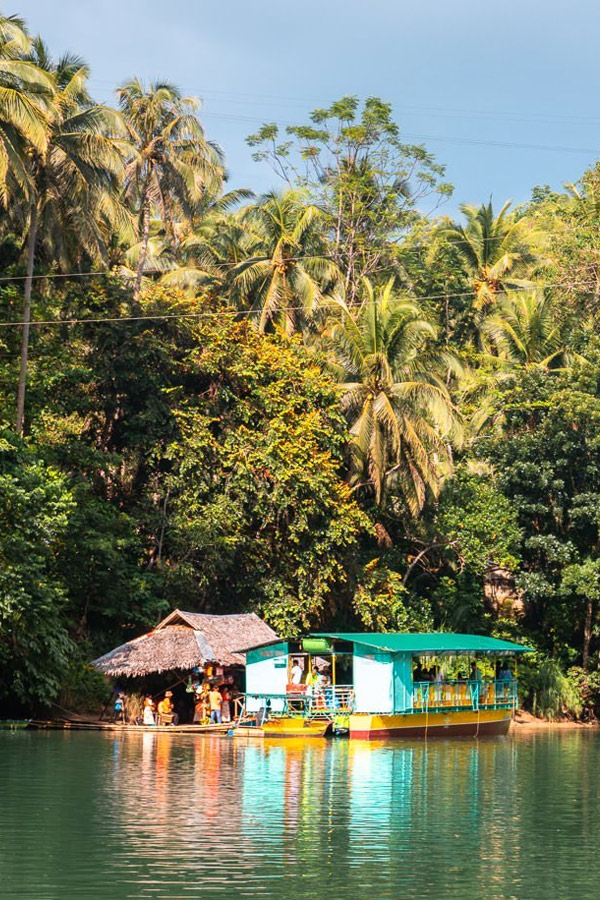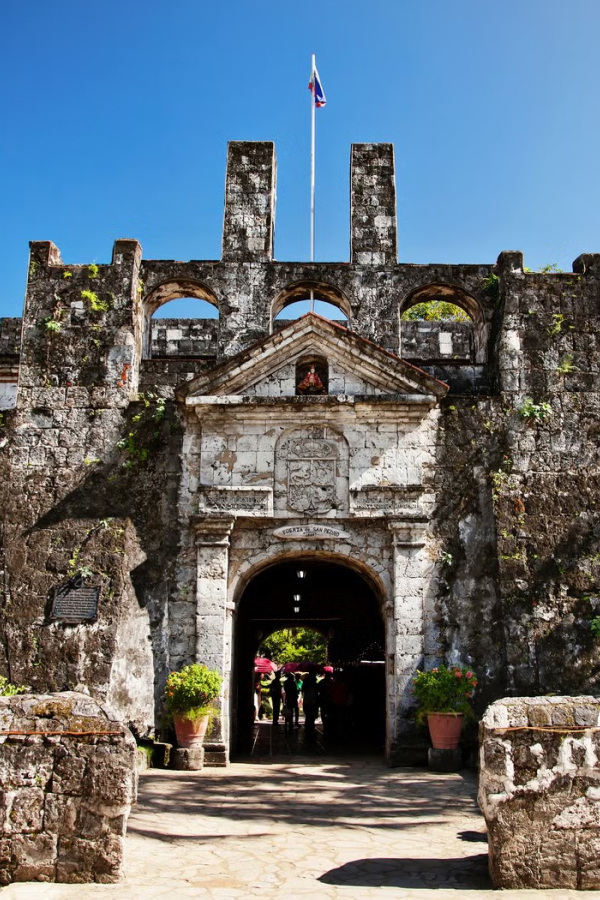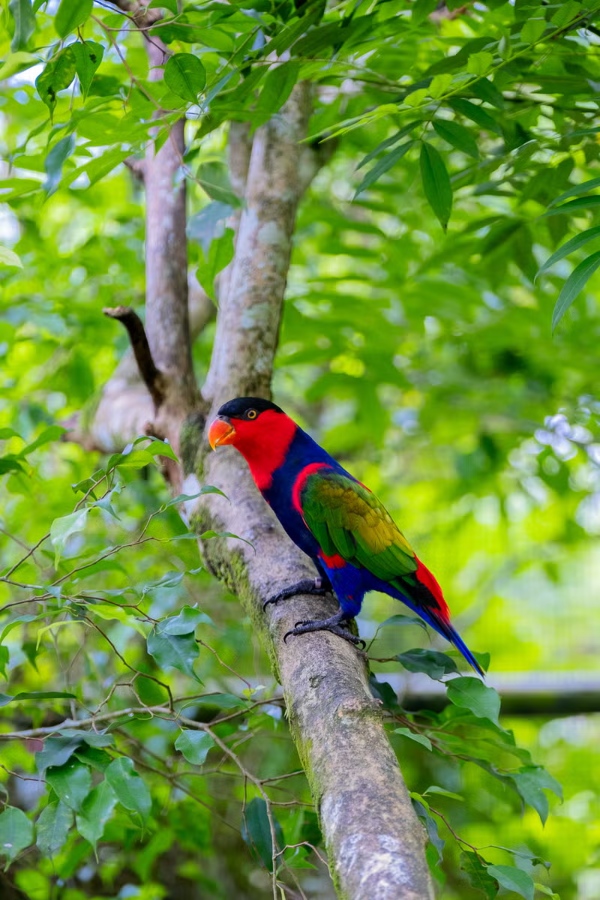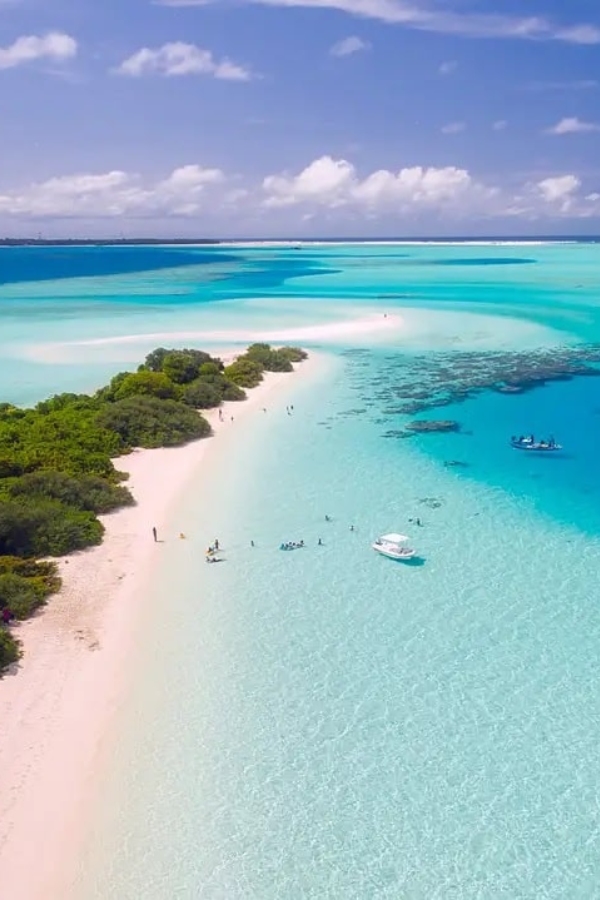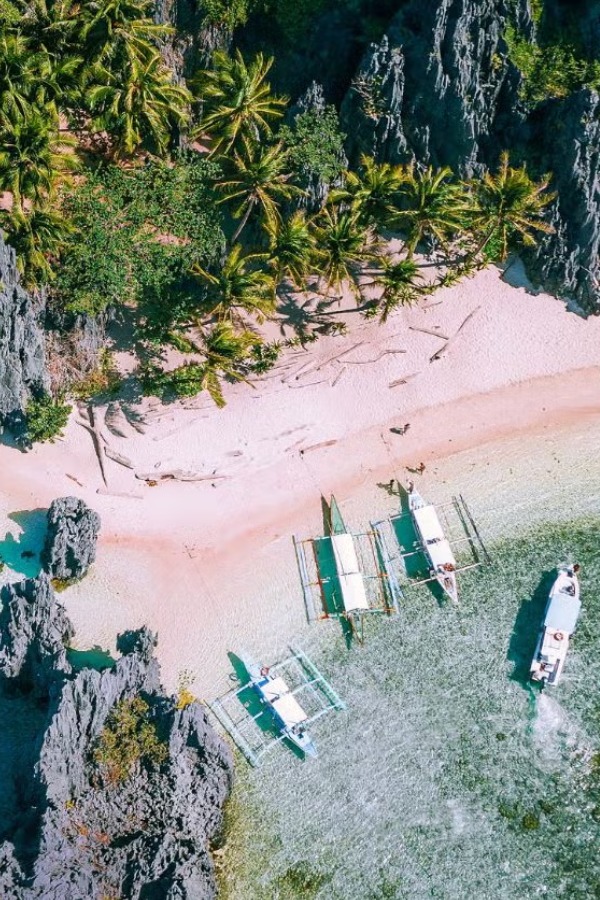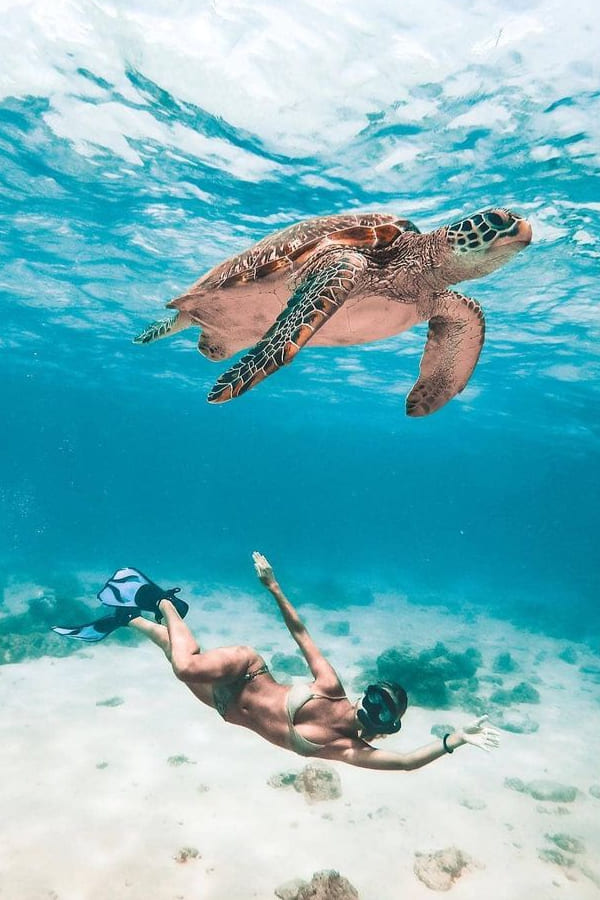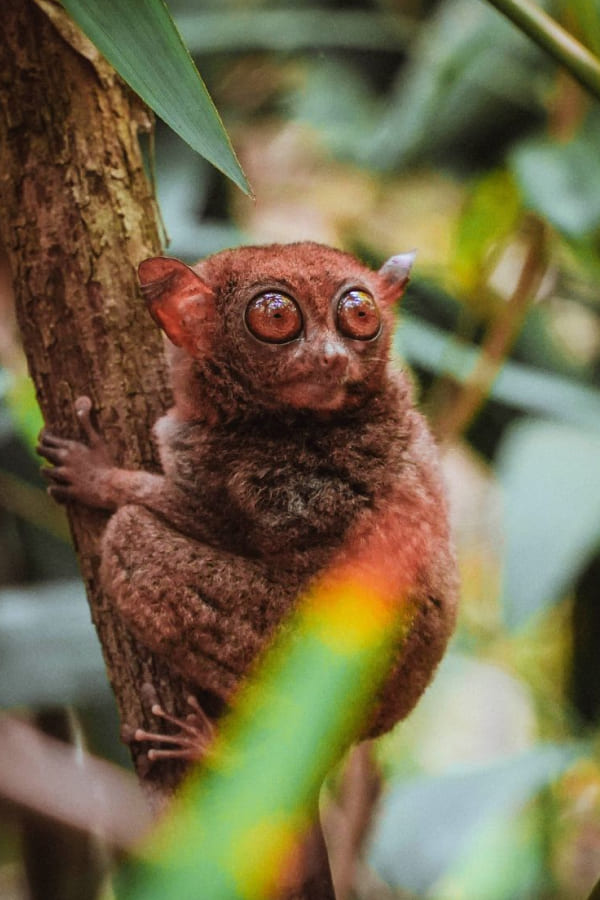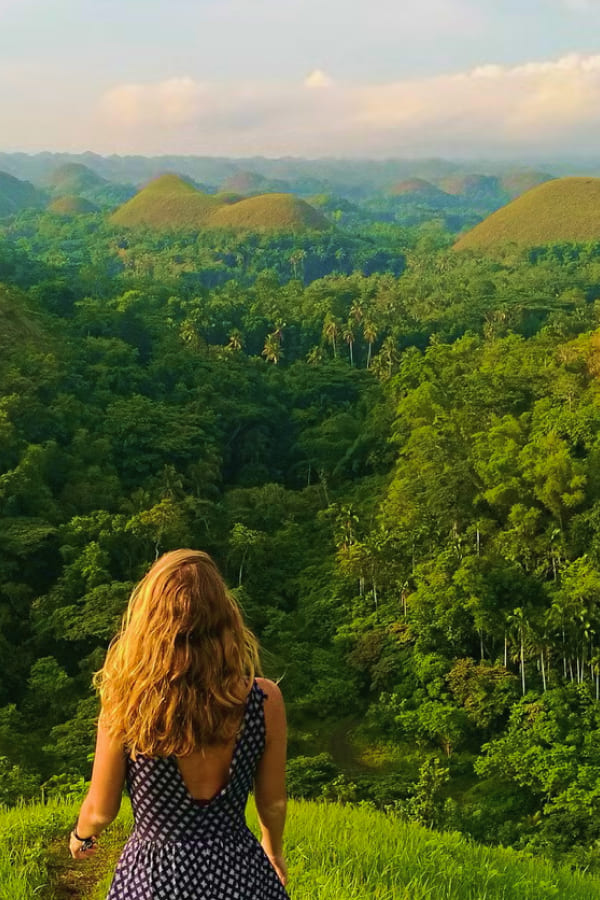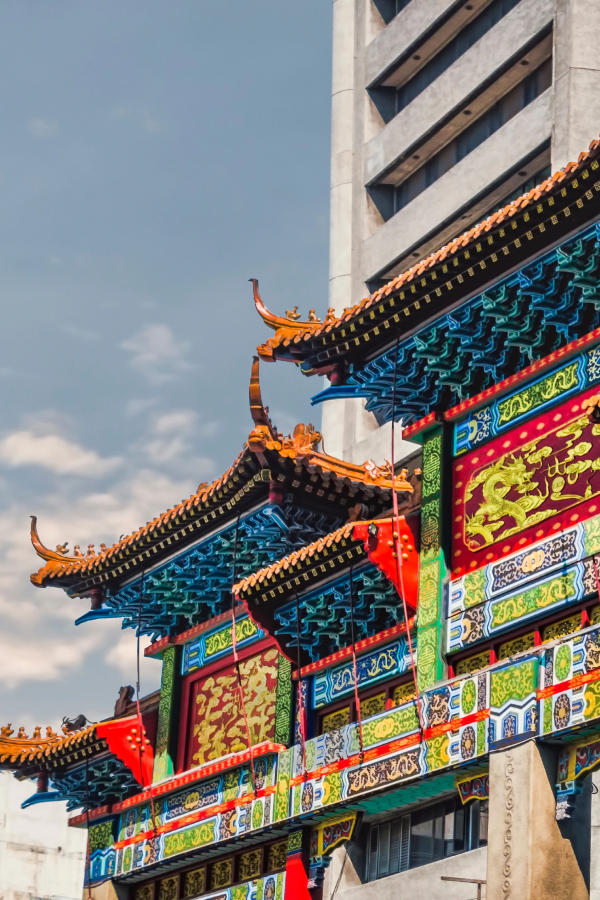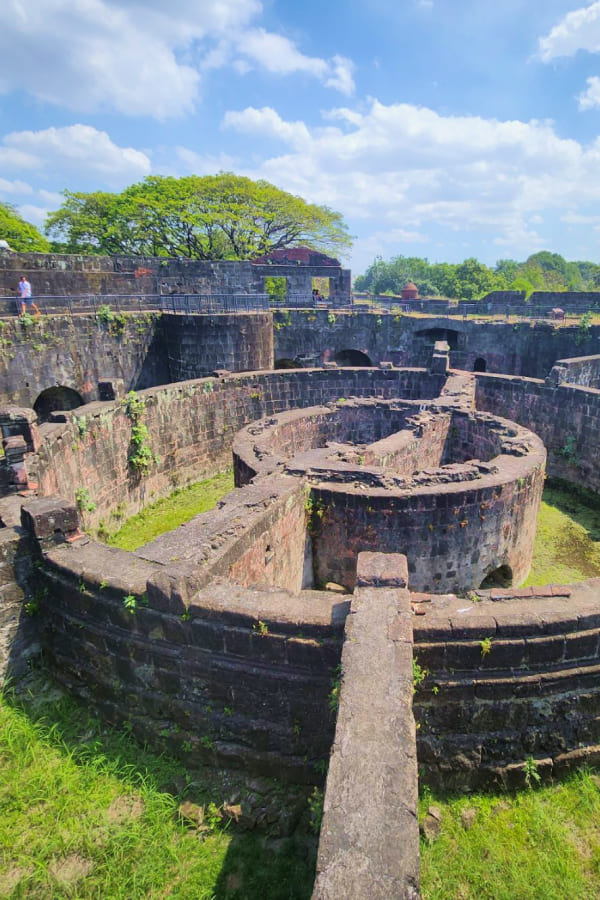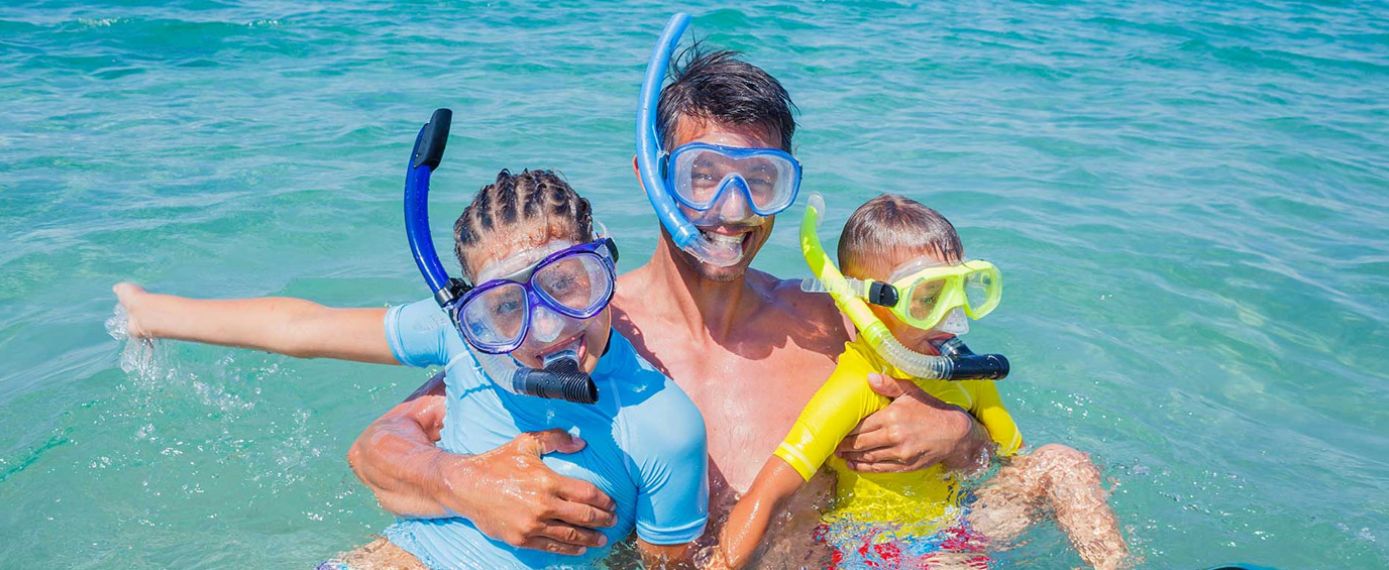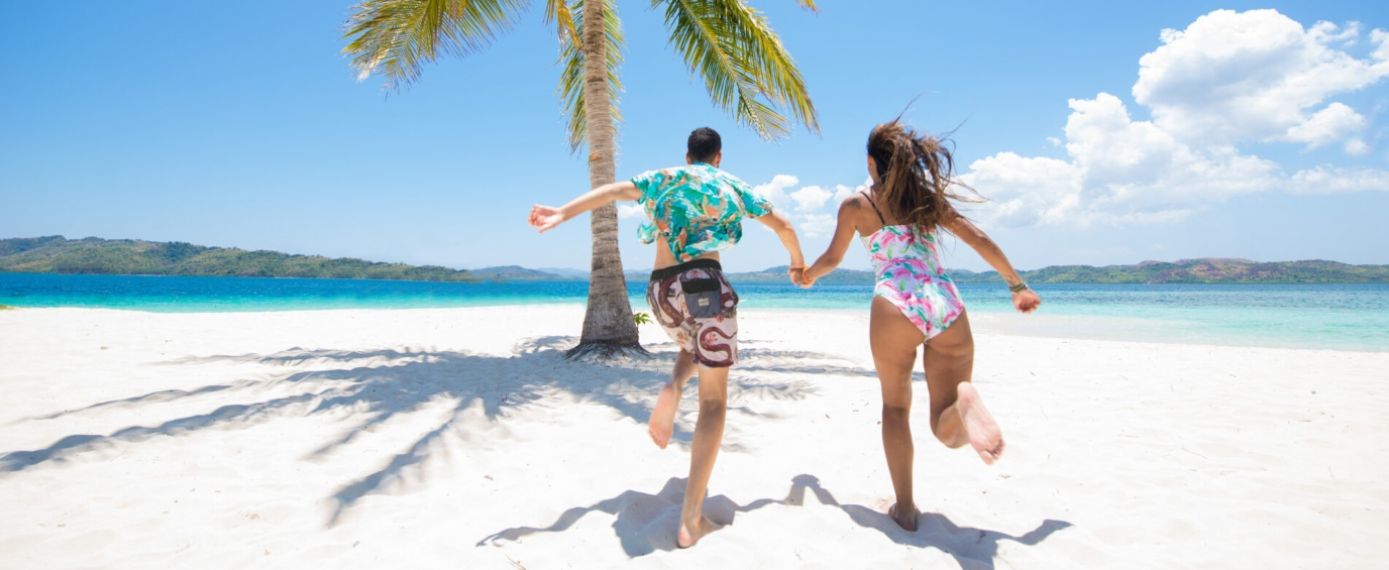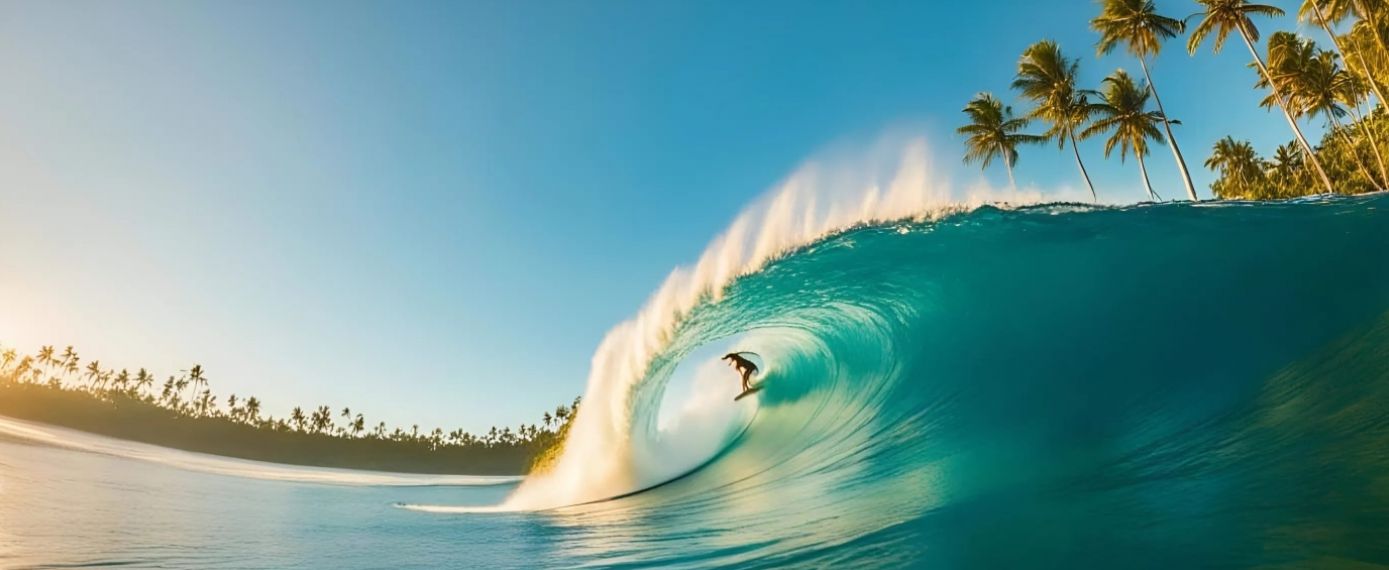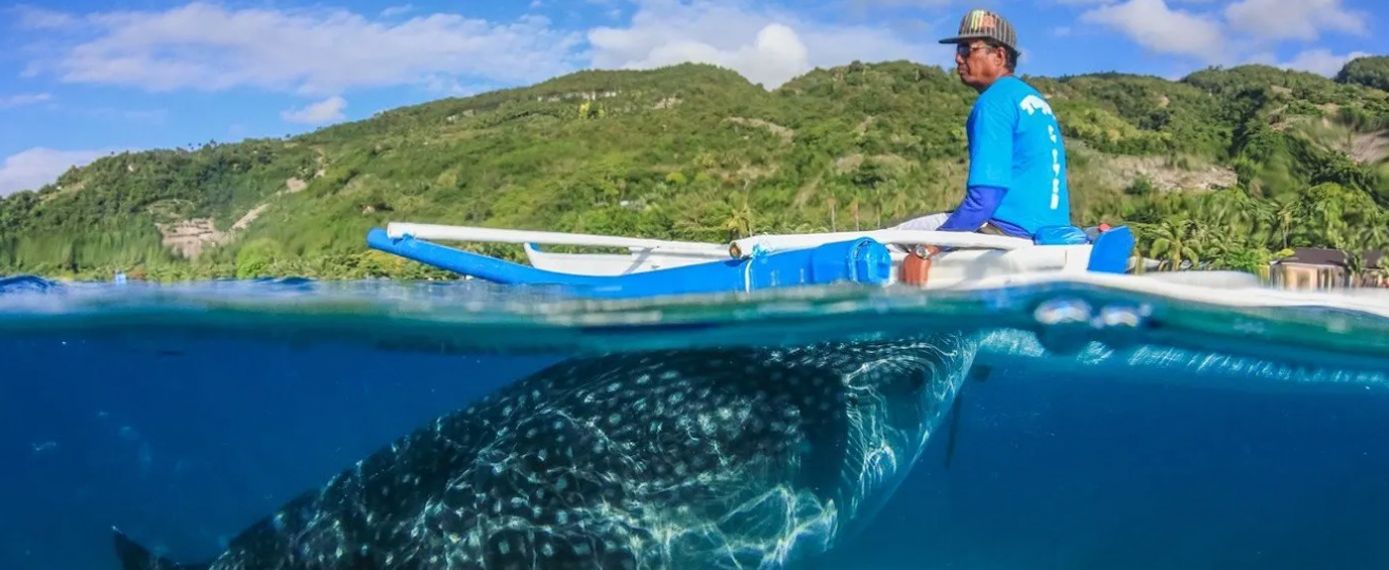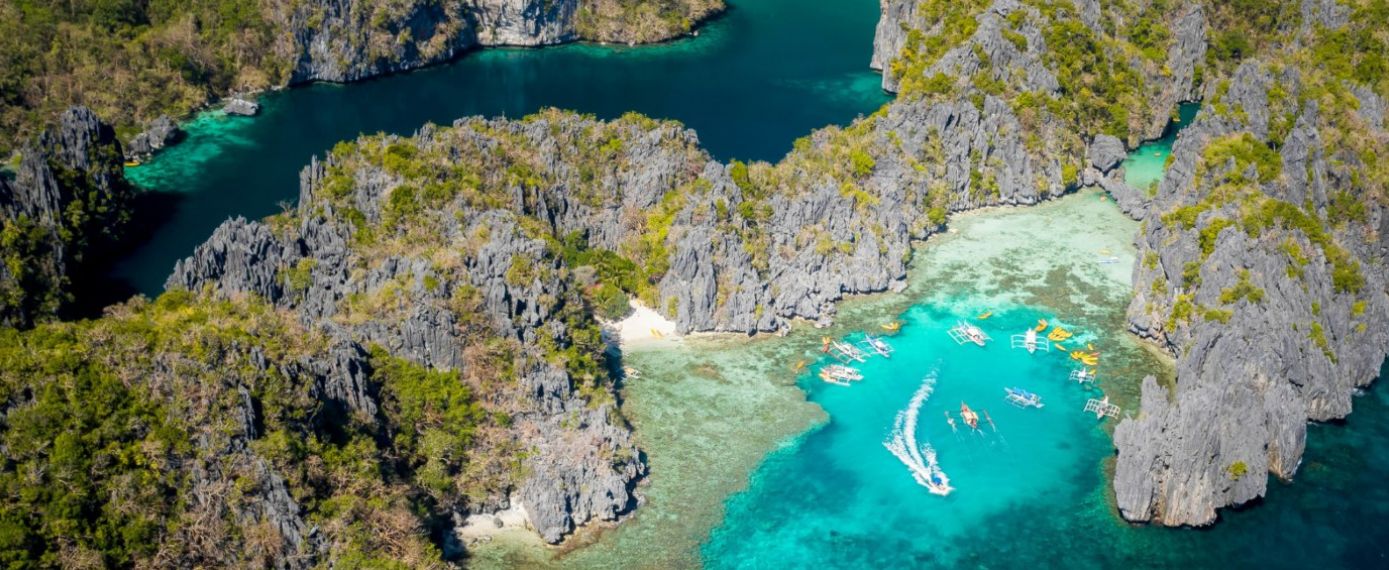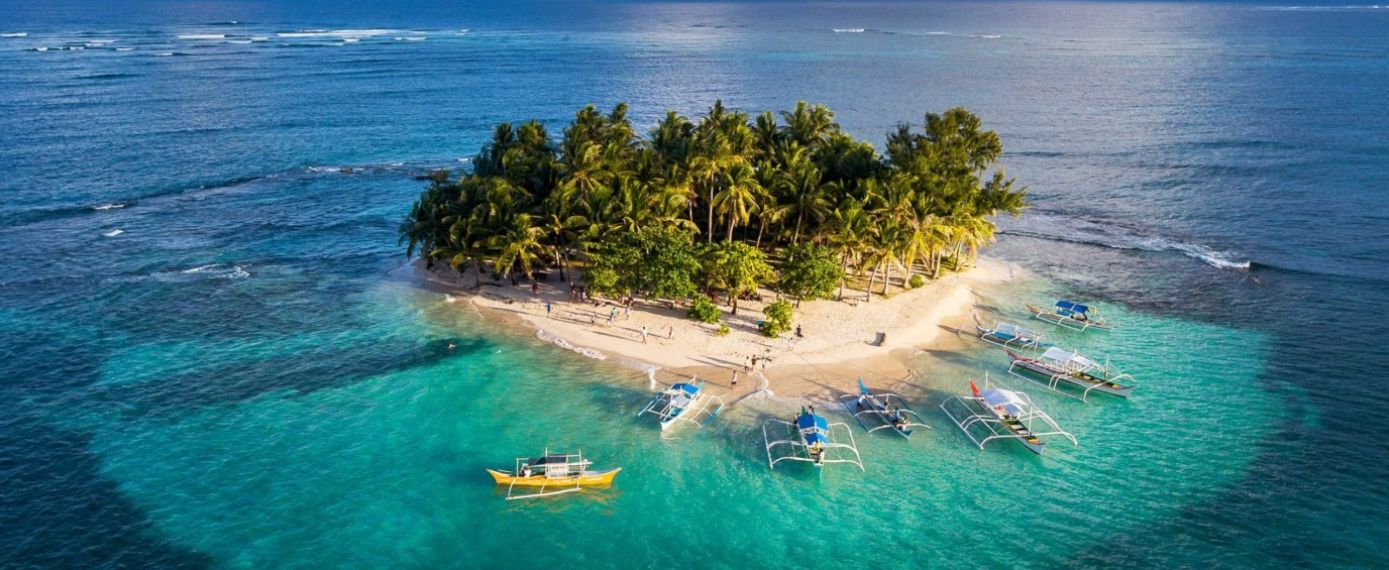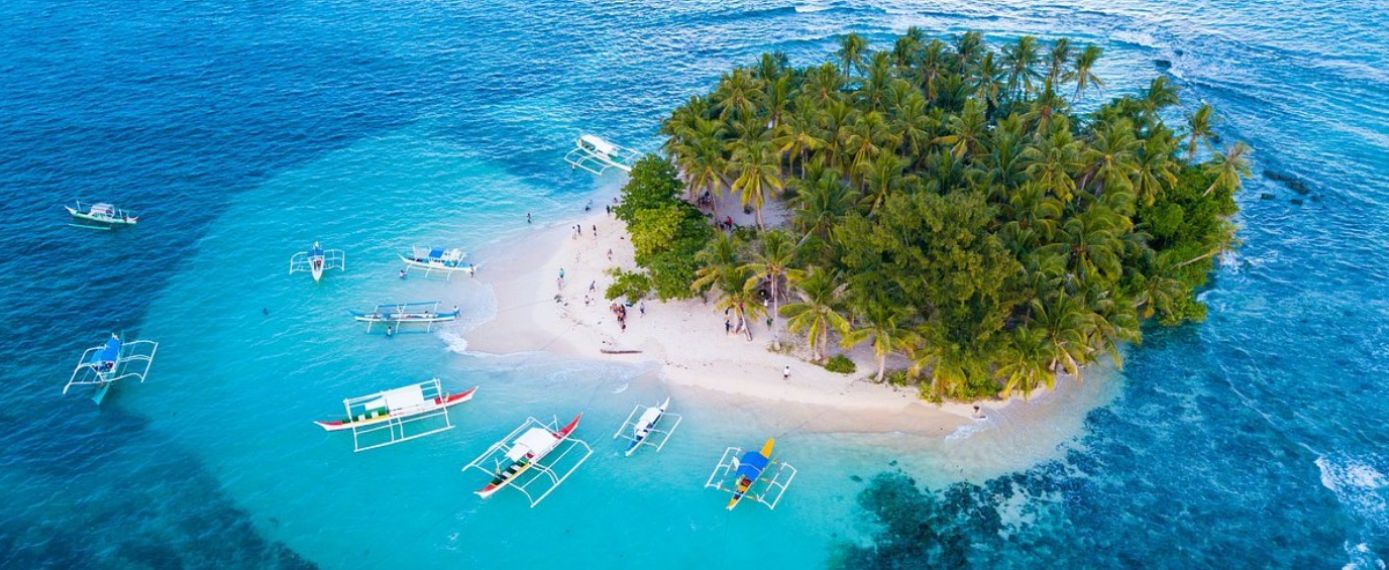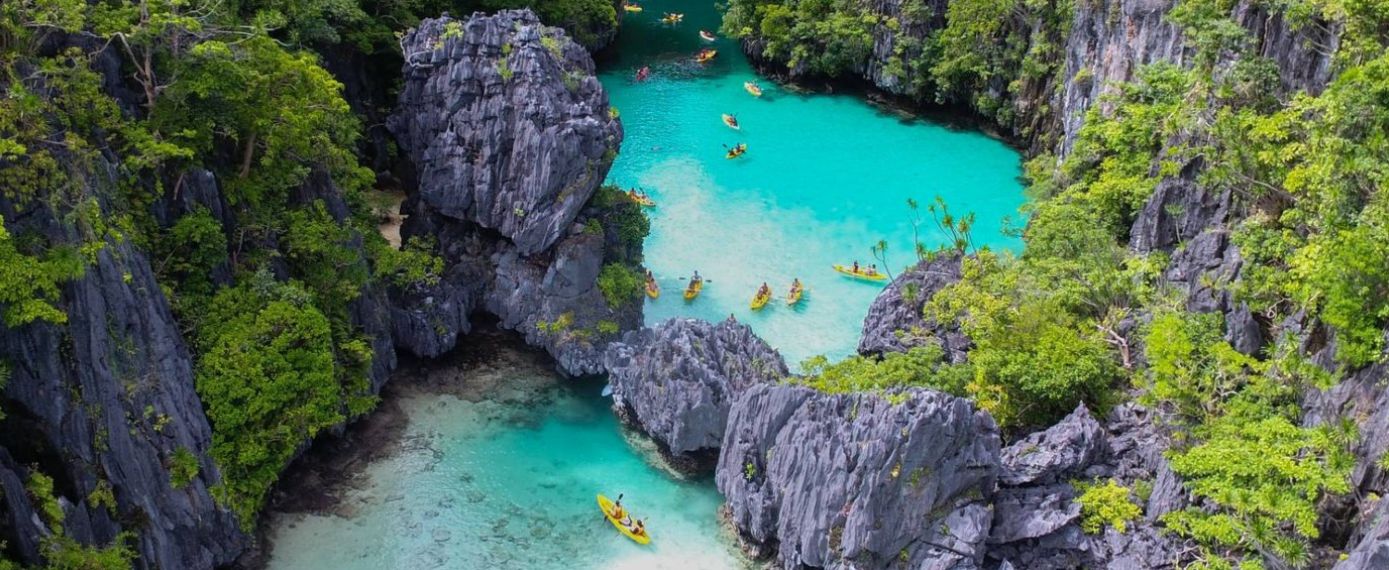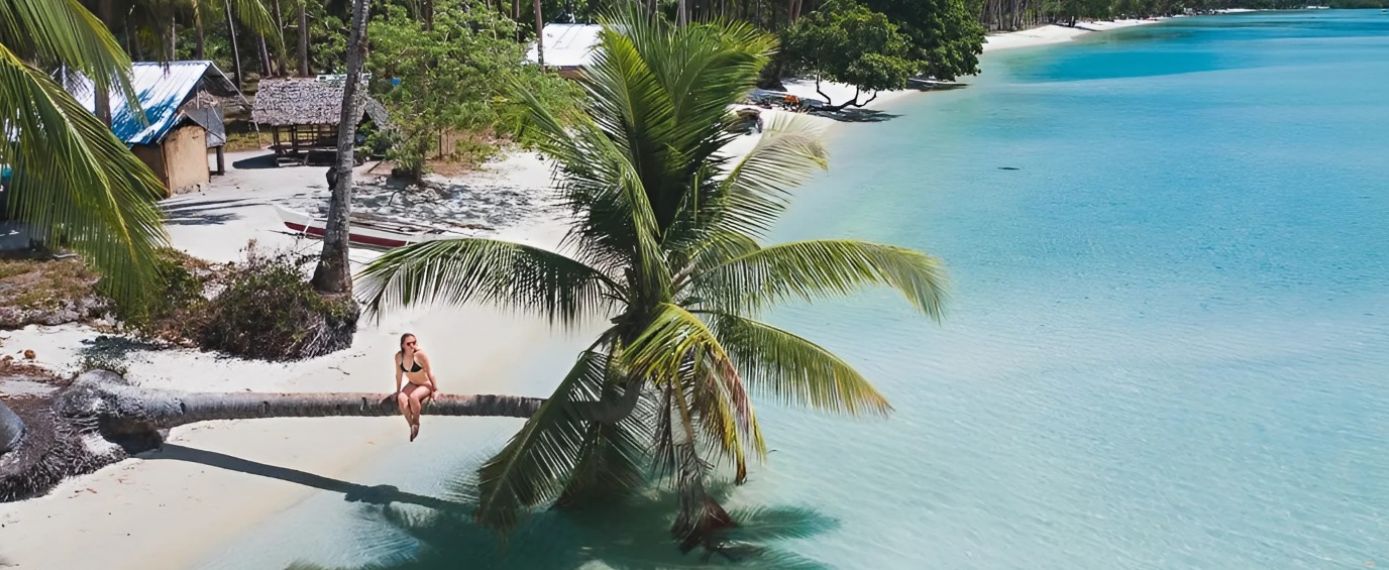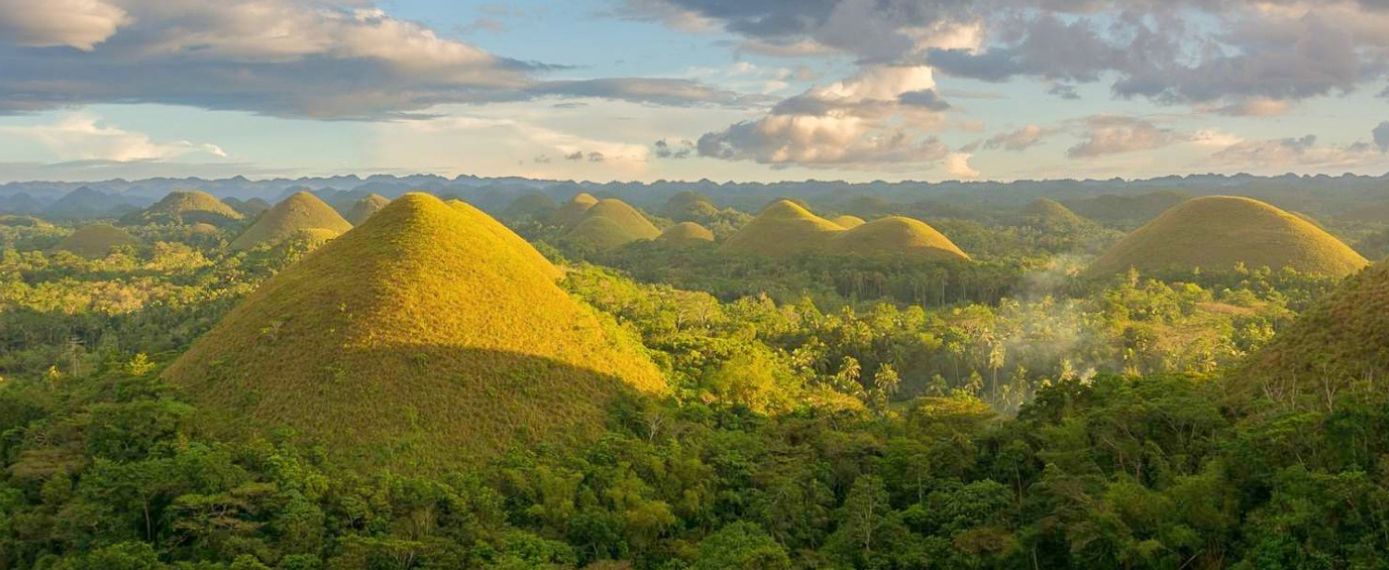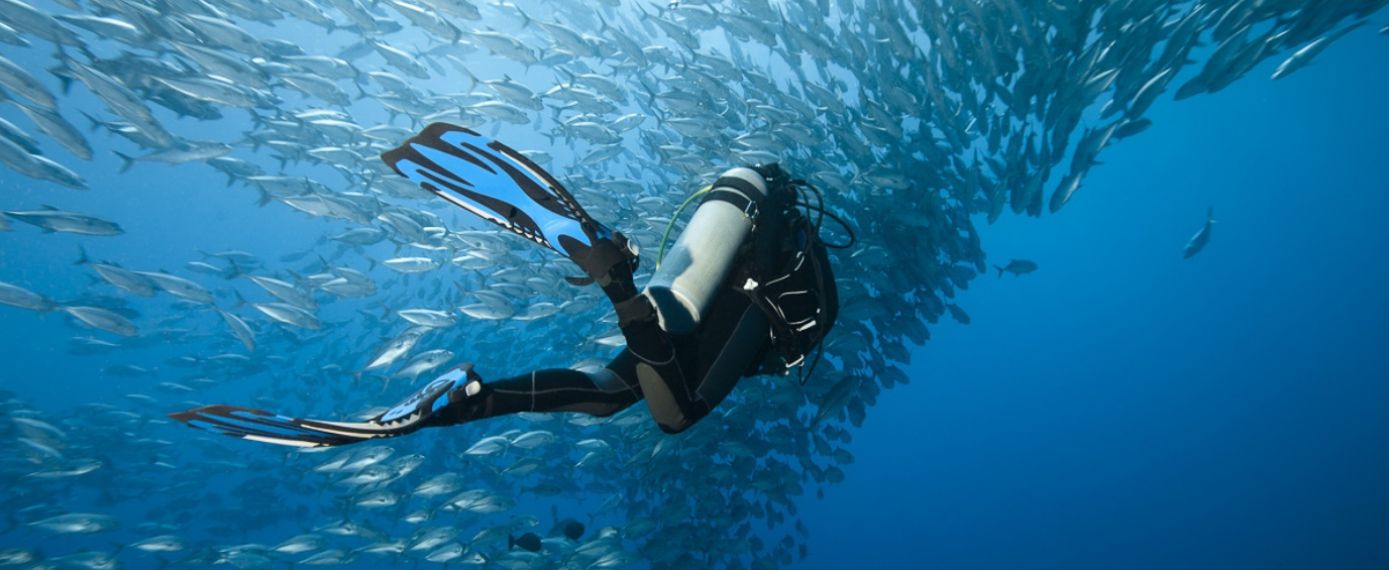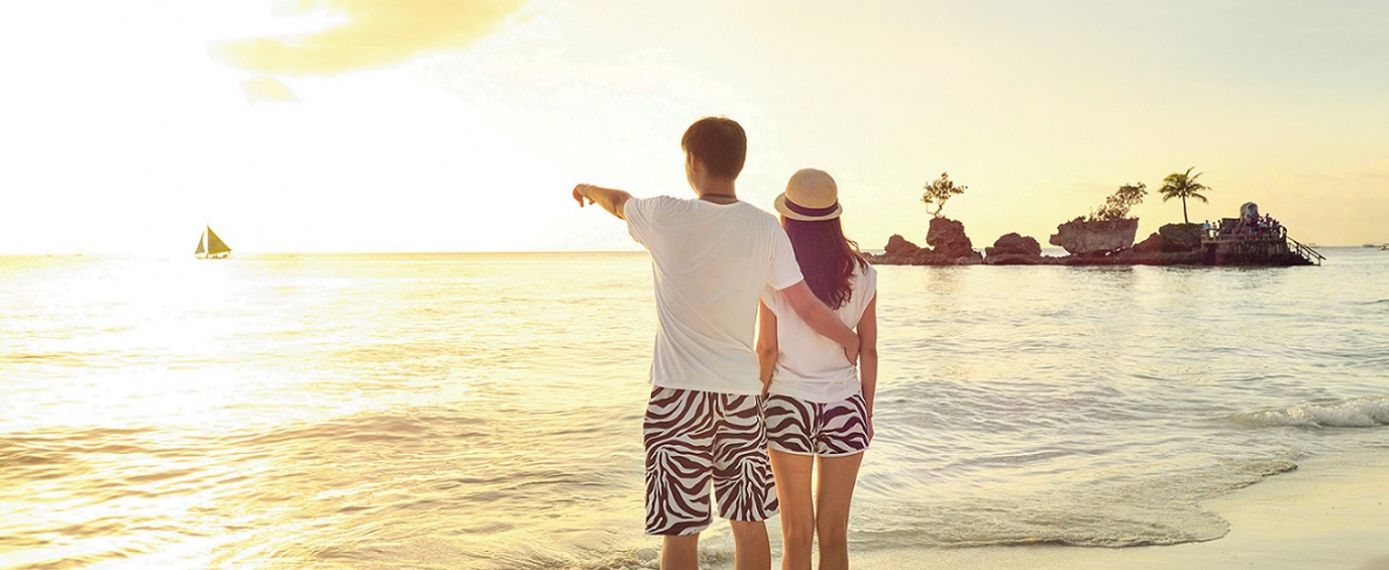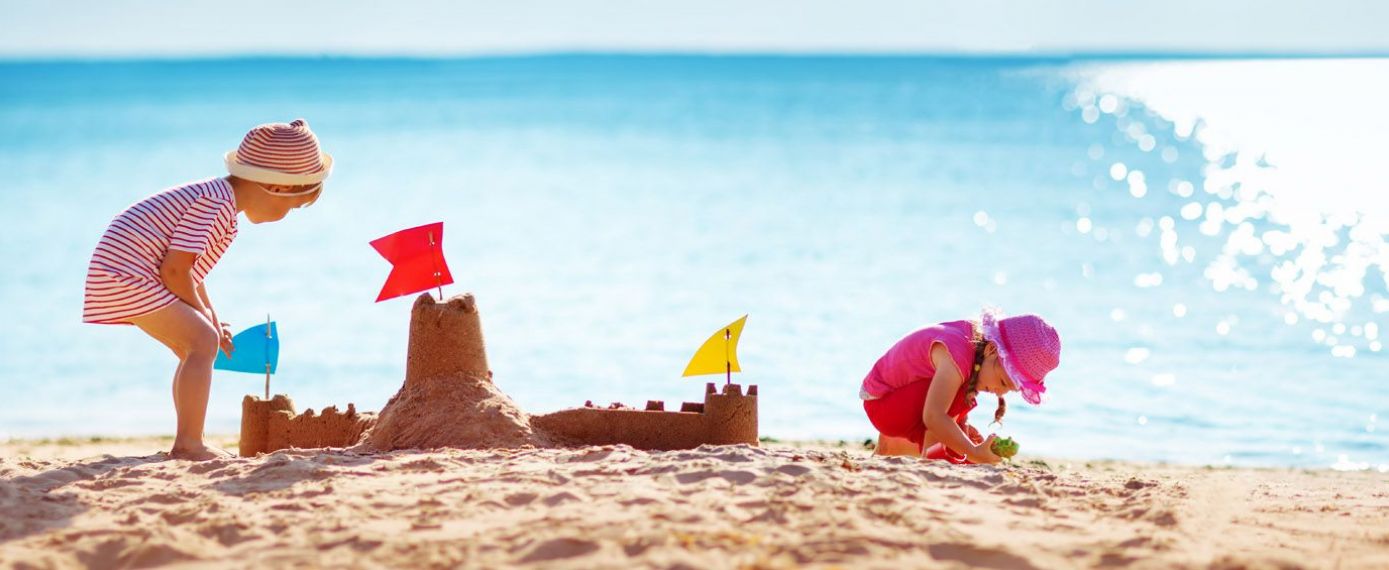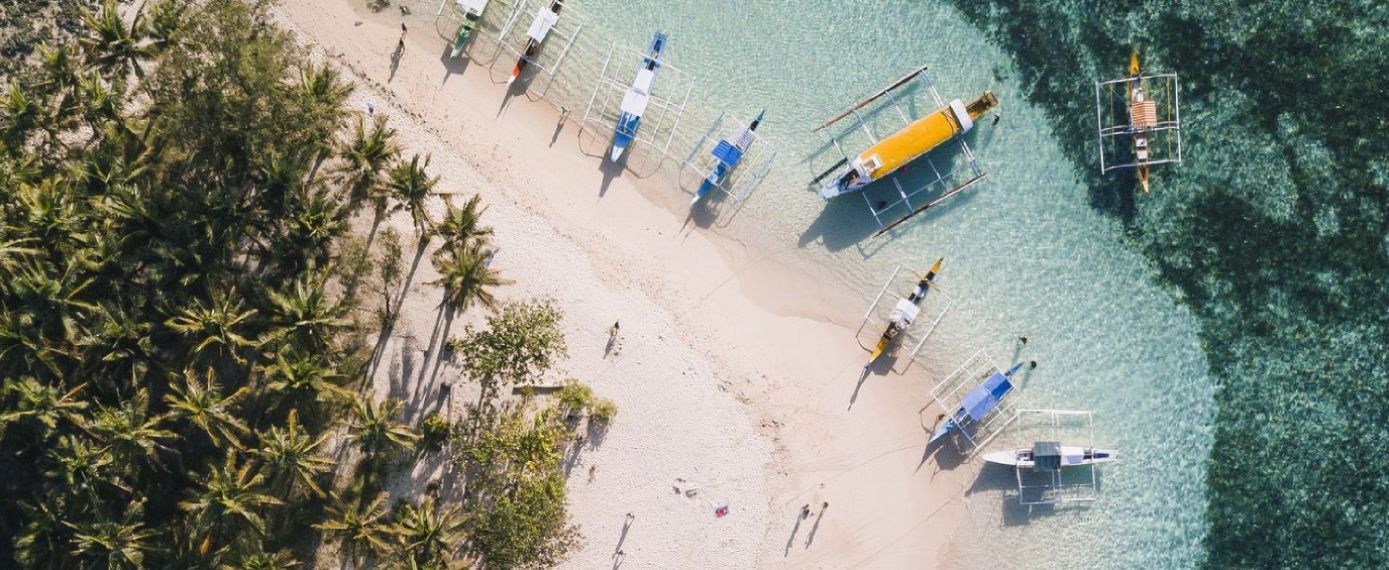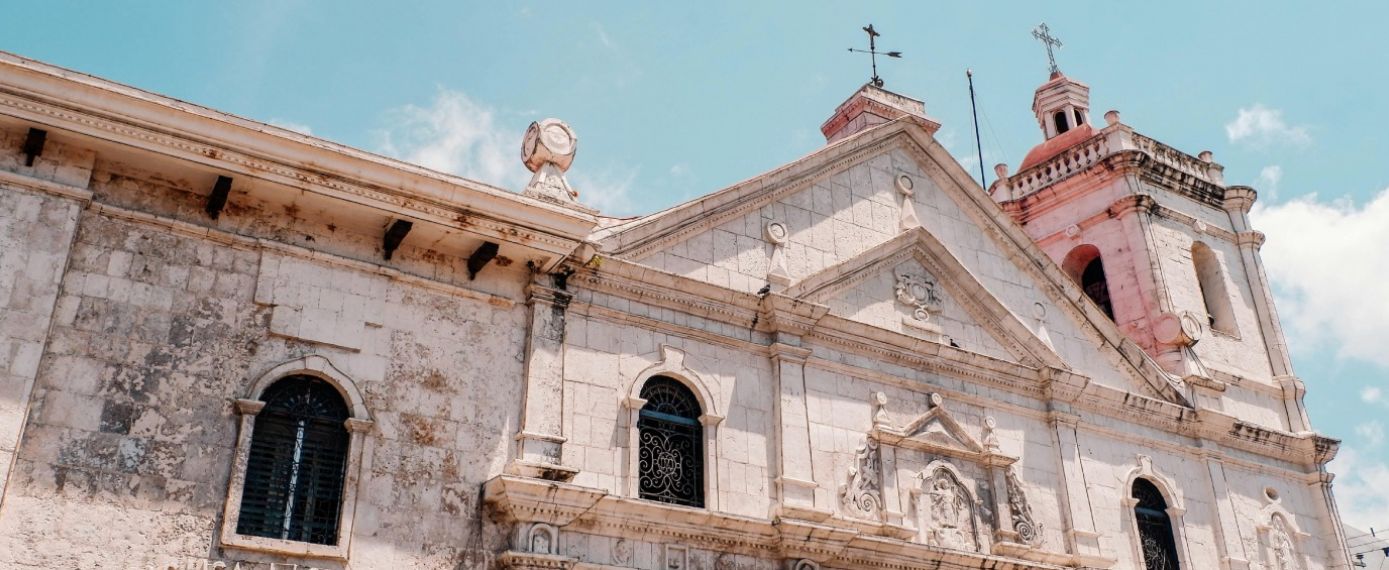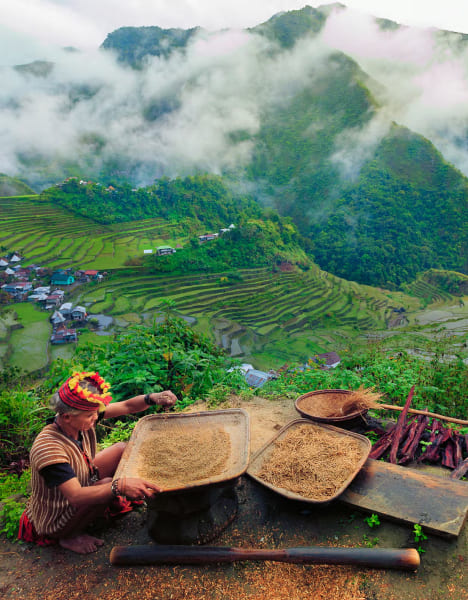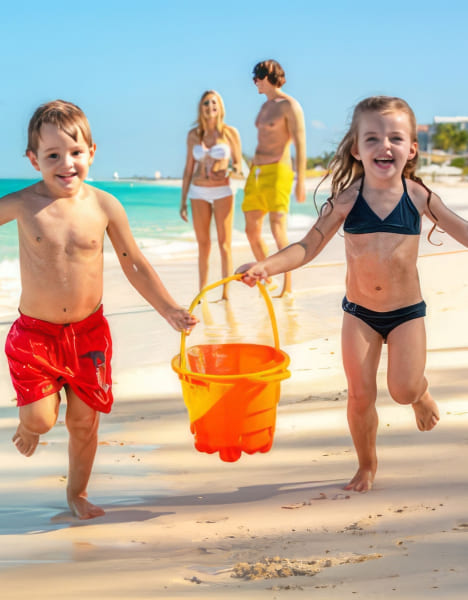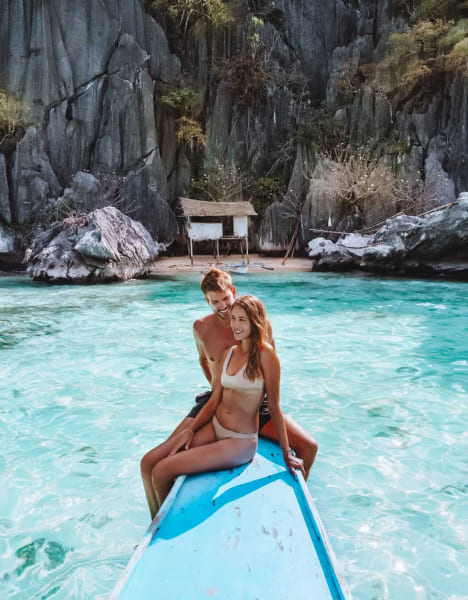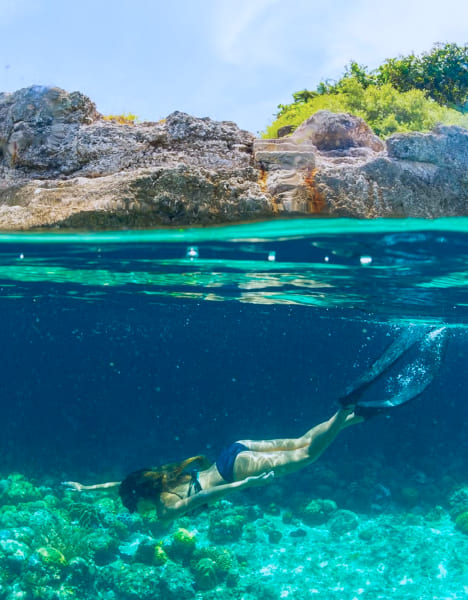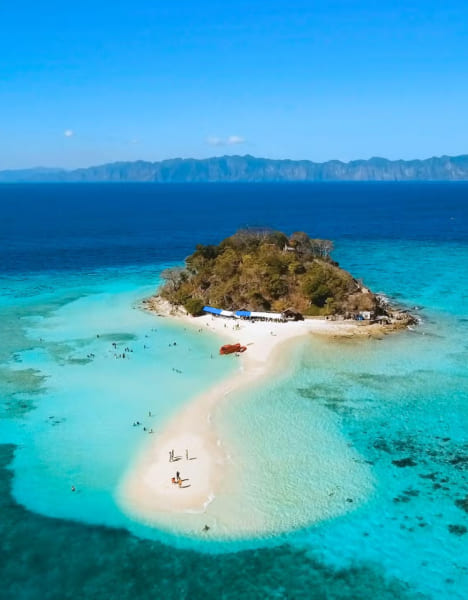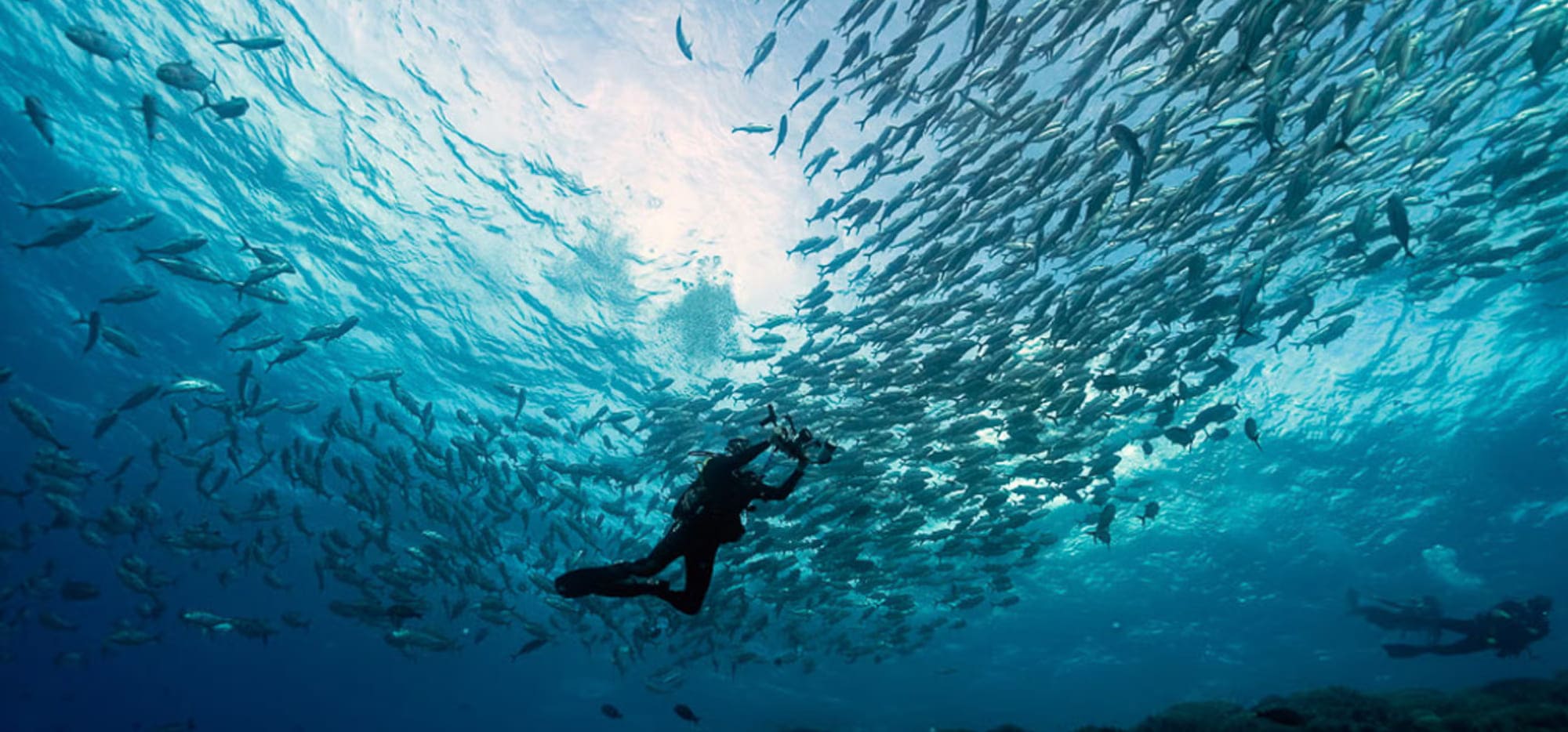
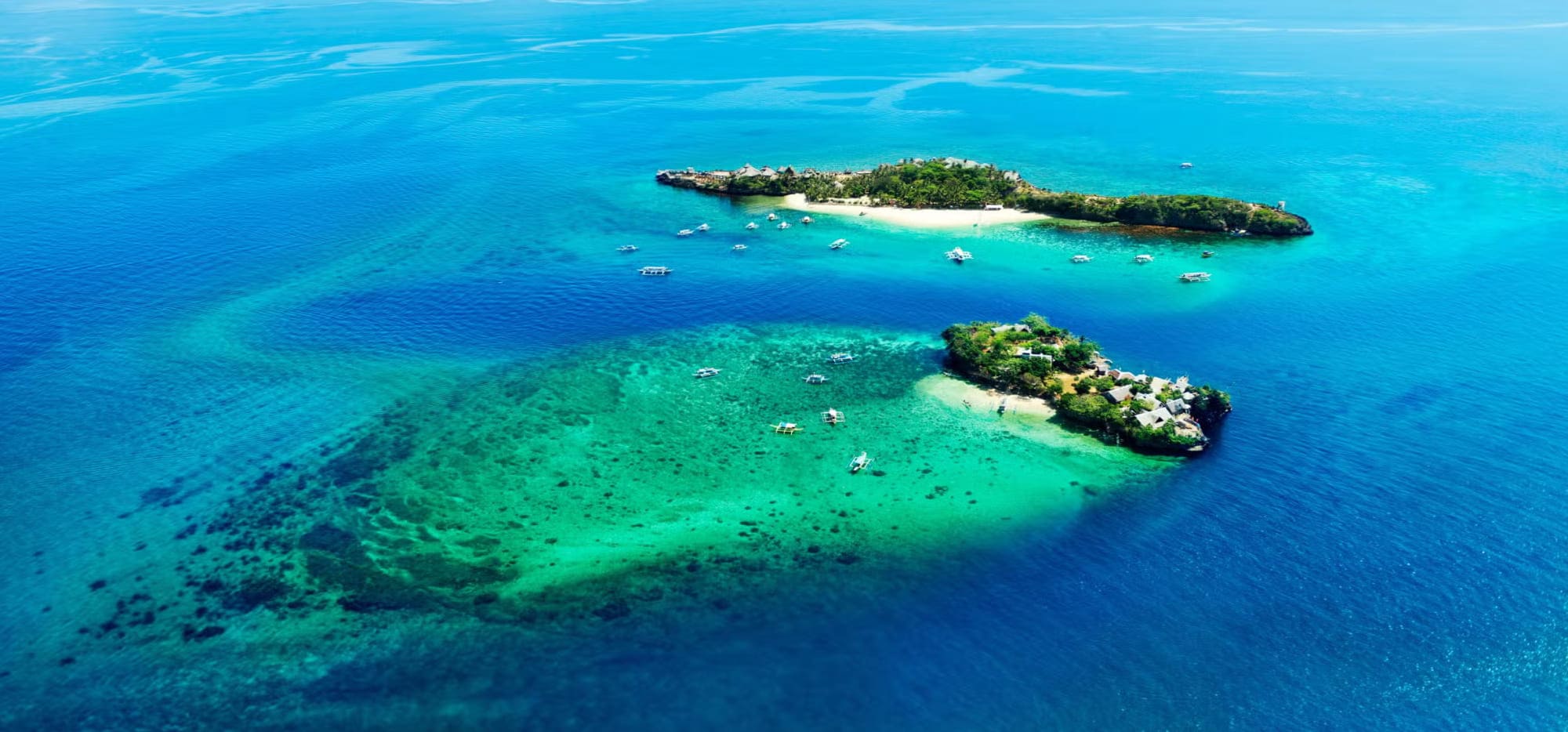
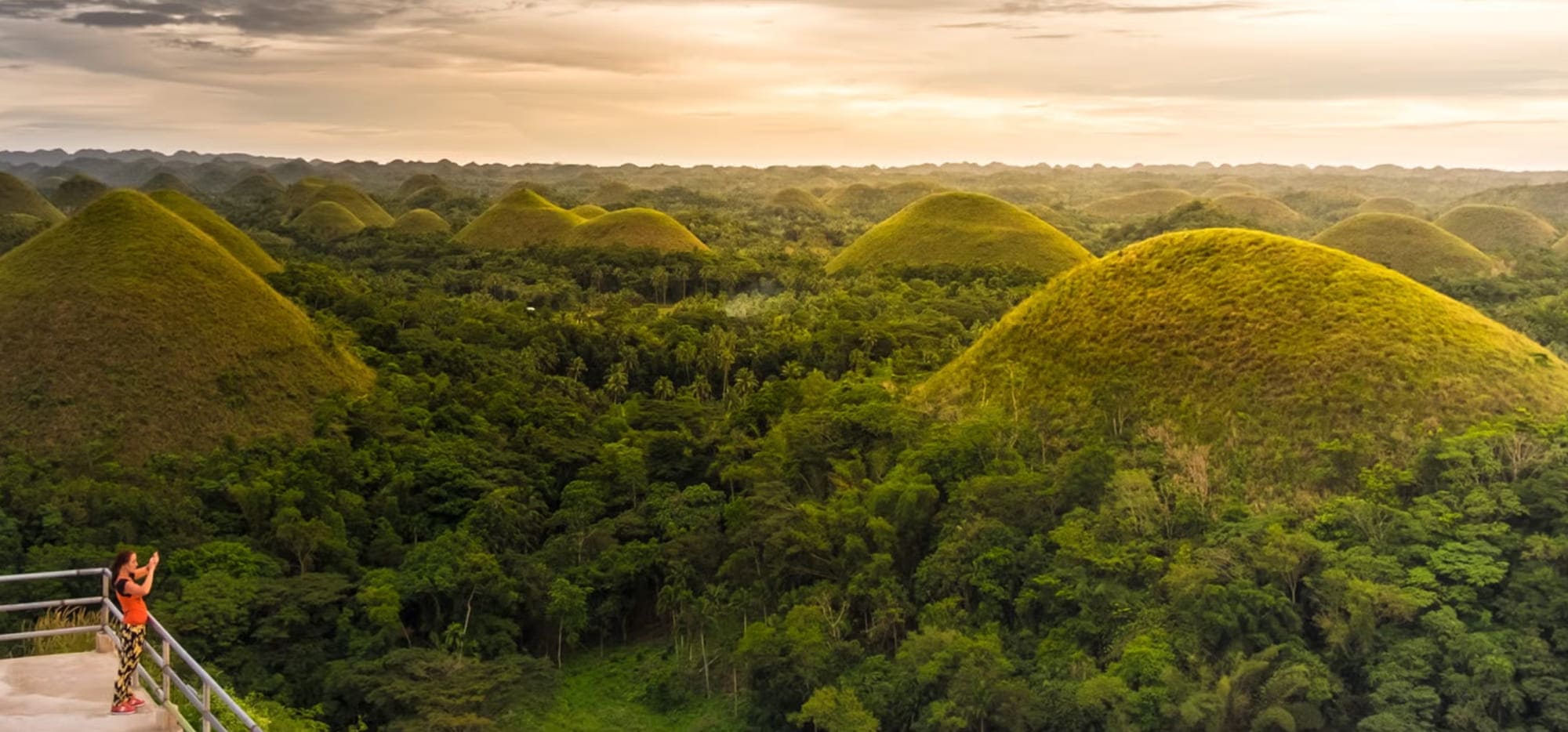
Highlights of Philippines Tours
As the second largest archipelago in the world, the Philippines stands as the undisputed king of island hopping tours, offering an array of extraordinary settings that spoil travelers with choices. From the whitest beaches and clearest waters to mesmerizing waterfalls and wildlife sanctuaries, there are many great places for visitors to spot monkeys, whale sharks, sardine runs, tarsiers, and so many other fascinating creatures.
For adrenaline junkies, the Philippines is a playground of adventure. You may enjoy a day of trekking through the breathtaking landscapes of Chocolate Hills in Bohol, swimming through a swarm of stingless jellyfish in Tojoman Lagoon, canyoneering down to Kawasan Falls in Cebu, or surfing the legendary Cloud 9 waves in Siargao; there are so many crazy adventures to be had.
Beyond its picturesque landscapes and activities, the warm hospitality of the Filipino people creates an inviting atmosphere for travelers. So get yourself ready to uncover the stunning landscapes and the warmth of Filipino smiles; surely, your vacation in the Philippines will be filled with fun and unforgettable experiences.
Read more ...
Philippines Tours
What are Philippines Tours?
The Philippines is a Southeast Asian archipelago made up of more than 7,000 islands. Known for its stunning beaches, vibrant culture, and warm hospitality, the country offers a rich blend of Eastern and Western influences shaped by centuries of trade and colonization. Its capital, Manila, is a bustling metropolis, while its natural wonders, like Palawan and Boracay, attract visitors worldwide. The country is also home to diverse ethnic groups, with Filipino and English as official languages.
Philippines Tours are guided travel experiences that showcase the country's diverse natural beauty, rich culture, and historical landmarks. These tours often include visits to famous destinations such as the white-sand beaches of Boracay, the limestone cliffs of Palawan, the Chocolate Hills of Bohol, and the vibrant city life of Manila and Cebu. Tours can range from island-hopping adventures and scuba diving trips to cultural heritage tours and eco-tours in rural areas. Designed for travelers of all interests, Philippines Tours offer a unique way to explore the archipelago’s breathtaking landscapes, friendly communities, and colorful traditions.

There are two main styles of Philippines Tours, which are private tours and group tours. Each option has distinct benefits and drawbacks. Here’s a look at the pros and cons of both to help you decide which suits your travel style best.
Philippines Private Tours
Philippines Private Tours are customized travel itineraries crafted specifically for individuals, couples, families, or small groups who prefer a more personal and flexible way to explore the country. These tours are tailored to match the travelers' interests, schedule, and pace, often including a private guide, exclusive transportation, and personalized schedules. Whether it's island-hopping, cultural immersion, or nature adventures, private tours offer a more intimate and comfortable way to discover the beauty and diversity of the Philippines.
Advantages of Philippines Private Tours:
Personalized Experience: Philippines private tours are made to your preferences, allowing you to explore at your own pace and focus on what interests you most.
Flexibility: You can adjust your itinerary, make spontaneous stops, and enjoy more control over your schedule.
Comfort and Privacy: Ideal for couples, families, or small groups seeking a more exclusive and comfortable travel experience.
Deeper Engagement: Private guides can offer more personalized attention and deeper cultural insights.
Disadvantages of Philippines Private Tours:
High Cost: Private tours in the Philippines are typically more expensive due to the personalized service and smaller group size.
Planning Required: While many private tours are organized by agencies, they may still require your information on preferences to choose activities.
Limited Social Interaction: Since it’s a more private setup, there's less chance to meet and interact with fellow travelers.
Philippines Group Tours
Philippines Group Tours are organized travel packages where a group of travelers follows a set itinerary together, usually led by a professional tour guide. These packages will include transportation, accommodations, and scheduled activities, making them a convenient and cost-effective option. Ideal for solo travelers, friends, or anyone looking to meet new people, group tours offer a social and structured way to explore the Philippines’ popular destinations, cultural sites, and natural attractions.
Advantages of Philippines Group Tours:
Cost-Effective: Philippines group tours are generally more affordable as costs for transportation, guides, and accommodations are shared among participants.
Pre-Planned Itinerary: Everything is organized for you, from hotels to daily activities, making it a hassle-free experience, especially for first-time visitors.
Social Interaction: Traveling with others offers opportunities to meet new people and make friends from around the world.
Disadvantages of Philippines Group Tours:
Fixed Schedule: Group tours follow a strict itinerary, leaving little room for spontaneity or personal interests.
Limited Flexibility: You may not be able to choose the restaurants, activities, or pace of travel.
Larger Crowds: Traveling with a group in the Philippines can be less intimate and sometimes hectic, especially during peak seasons.
Pace Mismatch: Group tours may move too quickly or slowly depending on the group’s average pace and needs.
Why choose Philippines Tours?
The Philippines is a Paradise of Breathtaking Beaches and Islands.
The Philippines is home to some of the most stunning beaches in the world, each offering its own charm and allure. Boracay is famous for its powdery white sand and vibrant nightlife, making it a favorite among both luxury travelers and backpackers. Palawan, often hailed as one of the most beautiful islands on Earth, boasts dramatic limestone cliffs, hidden lagoons, and emerald-green waters that look straight out of a dream. Siargao, meanwhile, is the country’s surfing capital, with laid-back vibes and unspoiled beaches. No matter which island you choose, you’ll be met with jaw-dropping views and warm, clear waters perfect for swimming, snorkeling, or simply soaking up the sun.
Filipinos are Warm and Welcoming.
Filipinos are often cited as some of the friendliest and most hospitable people you’ll ever meet. Known for their kindness, generosity, and genuine smiles, locals go out of their way to make visitors feel welcome. Whether you’re getting directions from a stranger, staying in a homestay, or chatting with market vendors, you'll often be met with warmth and enthusiasm. English is widely spoken, which makes it easy for travelers to connect and communicate.
Incredible Biodiversity and Marine Life
The Philippines is a biodiversity hotspot, perfect for nature lovers and underwater explorers. The country lies within the Coral Triangle, known as the Amazon of the seas, which means it has one of the highest levels of marine biodiversity in the world. Divers and snorkelers can explore vibrant coral reefs teeming with life, swim alongside sea turtles, and even encounter majestic whale sharks in places like Donsol and Oslob. The Tubbataha Reefs Natural Park, a UNESCO World Heritage Site, is a must-visit for serious divers, offering an untouched underwater world full of rare species. On land, travelers will also see unique creatures such as the Philippine tarsier, one of the world’s smallest primates.
The Philippines Has a Rich Culture and Colorful History.
The Philippines has a fascinating history and culture shaped by centuries of colonization, trade, and migration. Spanish rule left a lasting mark, especially visible in the country’s architecture, religion, and language. You can explore Intramuros in Manila, a walled city built during the Spanish era, visit centuries-old baroque churches, or wander around vibrant town plazas. The country also celebrates countless festivals year-round, such as Sinulog in Cebu and Panagbenga in Baguio, featuring parades, street dancing, and elaborate costumes. Indigenous traditions still thrive, especially in regions like the Cordillera, where tribes have preserved their rituals, craftsmanship, and beliefs. This diverse cultural tapestry adds depth to every visit.
Exciting Adventures and Outdoor Activities
If you love adventure, the Philippines offers an endless list of adrenaline-pumping activities. Hike up the majestic Mount Pulag or Mount Apo, dive through sunken World War II wrecks in Coron, or go canyoneering in Cebu’s Kawasan Falls. In Bohol, you can zipline over the scenic Loboc River or explore the Chocolate Hills, a unique geological formation. Siargao is perfect for surfing and paddleboarding, while Camiguin invites travelers to climb volcanoes and visit natural springs. Even just island-hopping in places like Honda Bay or Bacuit Archipelago feels like an epic quest. Whatever your thrill, the Philippines has an adventure for you.
Filipino Cuisine is Delicious and Unique.
Filipino cuisine is a flavorful mix of various culinary influences, including Spanish, Chinese, American, and indigenous traditions. Every region in the country offers its own take on classic dishes, which makes exploring the food scene an adventure in itself. Iconic meals like adobo (meat marinated in vinegar and soy sauce), sinigang (a tangy tamarind-based soup), and lechon (roast pig) are must-tries. Eating in the Philippines isn’t just about satisfying hunger; it’s about sharing meals and stories and experiencing a deeply rooted sense of family and community.

Best time to take Philippines Tours
The Philippines is a year-round tropical destination, but choosing the right time to visit can elevate your experience from great to unforgettable. Generally, the best time to visit the Philippines is between November and April, when the weather is dry, sunny, and ideal for beach-hopping, island tours, and outdoor adventures.
Peak Season: November to February
During these months, temperatures are cooler (averaging 24°C to 31°C), making it perfect for exploring popular destinations like Palawan, Boracay, and Cebu. It’s also the holiday season, so expect lively festivals and a joyful atmosphere. Just book accommodations early, as it’s a busy time.
Summer Season: March to April
This is the hottest period, with temperatures soaring up to 36°C in some areas. While it's dry and sunny, great for sun lovers and diving enthusiasts, it can be too hot for some. Beaches and resorts are popular escapes, especially during Holy Week (Easter), when locals travel, too.
Off-Peak (Rainy) Season: May to October
While this is the monsoon season, it doesn’t rain all day, every day. Prices are lower, and crowds are thinner. If you're lucky, you can still enjoy clear skies and peaceful travel. Just keep an eye on weather updates, as typhoons can occur during these months.
What you can expect from Philippines Tours
- Explore Siargao Island’s natural beauty by visiting Cloud 9 Surf Spot, Coconut Tree Viewpoint, Maasin River for mangrove canoeing, Magpupungko Rock Pools, and diving into crystal-clear pools and caves formed by tidal waters.
- Discover the Chocolate Hills in Bohol, a unique geological formation of over 1,200 grass-covered mounds that turn brown during the dry season, offering a breathtaking panoramic view from the viewing deck.
- Observe the world’s smallest primates, the tarsiers, in their natural habitat in Bohol, where these tiny, wide-eyed creatures cling to trees, offering a rare and fascinating glimpse into one of nature’s most unique and endearing species.
- Venture to Balicasag Island, a tropical paradise off Bohol's coast, known for its vibrant coral reefs, crystal-clear waters, and diverse marine life, offering opportunities for snorkeling, diving, and relaxing on its pristine white-sand beaches.
- Experience unforgettable island-hopping tours in El Nido, exploring breathtaking destinations like Secret Lagoon, Big Lagoon, and Shimizu Island, where pristine beaches, vibrant coral reefs, and dramatic rock formations await adventure seekers and nature lovers.
- Unveil the beauty of Port Barton's surrounding islands on an island-hopping tour, where you’ll explore hidden beaches, snorkel in vibrant coral reefs, and relax in serene lagoons, all while soaking up the tropical paradise of Palawan.
- Set sail on a Coron island-hopping tour, visiting dreamy beaches, dramatic lagoons, and colorful coral gardens, while snorkeling in crystal-clear waters and uncovering the natural wonders of the surrounding islands, perfect for adventure and relaxation.
- Wander through the historic walled city of Intramuros, where centuries-old Spanish colonial architecture, cobblestone streets, and iconic landmarks such as Fort Santiago and Manila Cathedral offer a glimpse into the Philippines' rich cultural heritage.
- Savor the vibrant flavors of Binondo's street food scene, where tantalizing bites like lumpia, siomai, and fish balls await, offering a delicious journey through Manila’s historic Chinatown, blending Chinese culinary traditions with Filipino tastes.
- Immerse yourself in the heart of the Philippines as you embark on an unforgettable Cebu City tour, exploring stunning landmarks and iconic sites like Magellan’s Cross, the Basilica del Santo Niño, and the stunning Fort San Pedro.
- Swim alongside the gentle giants of the ocean in Oslob, where you'll have the rare opportunity to get up close and personal with the majestic whale sharks, gliding through crystal-clear waters in one of the world’s most unforgettable marine encounters.
- Enjoy a day out at the thrilling Cebu Safari and Adventure Park, where kids can embark on a wild adventure, interact with exotic animals, enjoy fun activities, and explore lush landscapes, making it the perfect destination for young explorers and animal lovers alike.
- Explore Boracay on a captivating day tour, where you'll stroll along pristine beaches, visit serene natural parks, and take in stunning panoramic views, all while immersing yourself in the island's unique charm and tranquil atmosphere.

Most Popular Destinations on Philippines Tours
Manila
Manila is the Philippines' bustling capital city located on the island of Luzon. It is the starting point for all visitors before jumping off to other areas of the country by air or by boat. As a melting pot of cultures with multiple Spanish and Chinese influences, Manila is full of things to see and do, making it a lively destination to explore.
El Nido
El Nido covers an area of about 400 square kilometers at the northern tip of Palawan Island, featuring striking limestone cliffs, mesmerizing lagoons, and endless beaches in between azure waters. It is the launch pad for the daytime excursions to the surrounding limestone islands of the stunning Bacuit Bay archipelago, such as Shimizu, Cadlao, Dilumacad, and Matinloc... Sea kayaking is an eco-friendly way of exploring each island. Snorkeling and scuba diving are the top activities on the bucket list of many travelers, thanks to the abundant marine life and coral reefs around most of the islands.
Bohol
Bohol, the roughly circular and mid-sized island in the Central Philippines, is a destination that seamlessly blends natural beauty, rich history, and captivating culture. It is home to one of the country's most iconic landmarks: the Chocolate Hills. This geological site is composed of more than a thousand perfectly cone-shaped hills that turn brown during the dry season, resembling a giant box of chocolates. Climb up to the viewing platform for panoramic views that will leave you in awe.
Siargao
Siargao, a stunning teardrop-shaped island off the northeastern coast of the Mindanao Region, is renowned as the surfing capital of the Philippines. Its global fame soared when Conde Nast Traveler readers named it the Best Island in the World in 2019. With its 48 islands and islets divided into nine municipalities, Siargao is home to one of the world's most renowned and challenging surfing waves. While Cloud 9 is the iconic surf spot that put Siargao on the map, it still has so much more to uncover, from cave exploration and rock climbing to kayaking, paddleboarding, and island hopping.
Coron
Coron is one of Palawan’s most popular beach and island destinations. This paradise-like getaway comprises the eastern half of Busuanga Island, Coron Island itself, and 50 other islands that form part of the Calamian Archipelago. It is the starting point for boat tours to jagged limestone islets, shallow-water coral reefs, and fascinating shipwreck sites, including remnants of seven Japanese World War II vessels sunk in September 1944.
Vigan
Vigan, the capital of Ilocos Sur province, is located in the northern area of Luzon. It is the only UNESCO World Heritage City in the country for being the best-preserved example of a planned Spanish colonial town since the 16th century in Asia. With its cobblestone streets, ancestral houses, and historic landmarks such as St. Paul’s Metropolitan Cathedral and Plaza Salcedo, Vigan offers a glimpse into the country’s Spanish-era legacy.
Cebu
Cebu is a tropical urban center located in the Central Visayas region of the Philippines, which offers a blend of natural beauty, historical richness, and vibrant urban life. As the oldest city in the country, it boasts a rich history dating back to the Spanish colonial period, evident in landmarks such as the Basilica Minore del Santo Niño, the oldest Roman Catholic church in the Philippines, and Fort San Pedro, a historic fortification offering a glimpse into Cebu's colonial past. The city is a gateway to more than 150 islands and a hub for craftsmanship, creativity, and gastronomy, making it a Creative City designated by UNESCO in 2019.
Boracay
Boracay is a small island in the central Philippines, famed for its stunning four-kilometer White Beach, which is consistently ranked among the best beaches in the world. Nevertheless, White Beach is only the starter; Boracay Island boasts other secluded coves, vibrant coral reefs, and lush marine life, perfect for keeping your sunny days filled with exciting activities such as diving into the clear waters to discover the underwater world, soaring above the sea with parasailing, or paddling along the gentle waves with kayaking.
Iloilo
Iloilo, a province on Panay Island in the Visayas region of the Philippines, is a destination known for its historical landmarks, quaint beaches and islands, heritage homes, plus tasty and unique cuisine. Often called “the heart of the Philippines,” Iloilo invites travelers to experience a mix of vibrant city life and serene escapes to beaches, mountains, and hidden lagoons. The province capital, Iloilo City, is a hub of culture and history where ancestral homes, beautiful churches, and historic buildings tell stories of a rich past.
Siquijor
Nestled in the Central Visayas region of the Philippines, Siquijor is a small island offering travelers a unique combination of natural beauty, outdoor adventure, rich cultural heritage, and mystical traditions. Renowned for its white sand beaches, crystal-clear waters, and vibrant marine biodiversity, Siquijor is a destination for exploring secluded caves and hidden waterfalls; diving to see vibrant coral reefs and diverse marine species up close, including the barracuda, reef shark, and turtles; going cliff jumping from a rock springboard...
Philippines Tours by Styles
Philippines Tours by Styles offer a variety of travel experiences tailored to different interests and preferences. Whether you're into adventure, beach getaways, cultural immersion, eco-tourism, or luxury escapes, these tours let you explore the Philippines in a way that suits your travel style.
Philippines Heritage & Culture Tours
Philippines Heritage & Culture Tours are curated itineraries designed to immerse visitors in the rich history, traditions, and cultural diversity of the Philippines. These tours will take you to historical landmarks, centuries-old churches, ancestral homes, UNESCO World Heritage sites, indigenous communities, and local festivals. Travelers will gain a deeper understanding of Filipino identity through guided explorations of art, cuisine, music, dance, and traditional crafts, fostering appreciation for the nation's unique cultural heritage.
Philippines Family Tours
Philippines Family Tours are particularly designed travel experiences for families searching for enjoyable, safe, and enriching holidays together. These tours include family-friendly destinations, activities suitable for all ages, and accommodations that provide comfort and convenience. Whether it's stunning beaches, wildlife encounters, cultural attractions, or interactive learning activities, these journeys provide unforgettable memories for the entire family while indulging in the best of the Philippines.
Philippines Honeymoon Tours
A honeymoon in the Philippines offers a romantic escape to striking tropical islands, white-sand beaches, crystal-clear waters, and breathtaking sunsets. Couples can enjoy private getaways, luxurious resorts, and unforgettable experiences in paradise. Specially crafted for couples, Philippines Honeymoon Tours feature romantic destinations, intimate activities, and stress-free itineraries. From island hopping in Palawan to relaxing in Boracay, these tours provide the perfect setting for love and adventure.
Philippines Adventure & Outdoor Tours
Philippines Adventure & Outdoor Tours are designed for travelers seeking excitement, adrenaline, and a deep connection with nature. From trekking up majestic volcanoes and exploring hidden waterfalls to diving in vibrant coral reefs and surfing along world-renowned beaches, these tours offer a wide range of thrilling experiences. Each adventure showcases the Philippines’ impressive landscapes and diverse ecosystems, perfect for outdoor enthusiasts and active explorers.
Philippines Beach & Island Tours
Philippines Beach & Island Tours offer the ultimate tropical escape, taking you to the country’s most captivating coastlines and idyllic islands. Discover powdery white-sand beaches, turquoise waters, vibrant coral reefs, and lush island landscapes in world-famous destinations like Palawan, Boracay, Cebu, and Siargao. Whether you're into sunbathing, snorkeling, diving, or simply relaxing by the sea, these tours provide the perfect blend of adventure and tranquility, ideal for couples, families, and solo travelers looking to soak up the beauty of island life in the Philippines.

Where to Stay on Philippines Tours
Accommodations on Philippines Tours range from luxury resorts and beachfront villas to budget-friendly hotels and eco-lodges. Whether you’re looking for comfort, adventure, or a local experience, there are plenty of options to suit every travel style and budget, each offering warm Filipino hospitality and stunning surroundings.
Manila
3-star City Garden Hotel Makati - 7870 Makati Avenue, corner Durban St., Poblacion Makati City
3.5-star Coro Hotel - 8436 Kalayaan Ave., Brgy. Poblacion, Makati
4-star Valero Grand Suites by Swiss-Belhotel Makati - 152 Valero Street, Salcedo Village, Makati City
5-star Dusit Thani Manila - Ayala Centre, 1223 Makati City Metro Manila
El Nido
3-star S Resort El Nido - Rizal Street, El Nido, Palawan Island
3-star Sea Cocoon Hotel - Calle Real, Barangay Masagana, El Nido 5313, Palawan
4-star Huni Lio - Lio Tourism Estate Lio Beach, El Nido, 5310 Palawan, Philippines, El Nido, Mimaropa
5-star Seda Lio - Lio Tourism Estate, Bgy. Villa Libertad, El Nido, Palawan 5313
Bohol
3-star Mithi Resort & Spa - Anos Fonacier Circumferential Rd Bingag Elementary School, Dauis 6339
4-star Best Western Plus The Ivywall Resort Panglao - Alona Beach, Panglao, Bohol
4-star Bluewater Panglao Beach Resort - Sitio Daorong, Barangay Danao, Panglao Island, Bohol
5-star Henann Resort Alona Beach - Alona Beach, Tawala, Panglao Island, Bohol
Siargao
3-star Siargao Island Villas - Barangay Tourism Road Brgy. Catangnan, General Luna, Mindanao
3-star Reef Beach Resort - Tourism Rd Catangnan, Catangnan, Mindanao
4-star The Ohm Siargao Resort - Tourism Rd Catangnan, Barangay Sta. Ines, General Luna, Mindanao
5-star Nay Palad Hideaway - Malinao Rd, General Luna, Surigao del Norte
Port Barton
3-star Royal Suites Port Barton - Bonifacio St, Port Barton, San Vicente, Palawan Island
Coron
4-star Coron Soleil garden Resort - Mabentangen Rd., Barangay 6, Coron, Palawan
Cebu
4-star Lex Hotel Cebu - Escario Street, Cor. Juana Osmena Extension, 6000 Cebu City
Boracay
4-star Hue Hotels and Resorts Boracay - Station 2, Main Road, Boracay Island, Malay, Aklan
Must-try Food on Philippines Tours
Adobo
Adobo stands as one of the most cherished and iconic dishes in Filipino cuisine, celebrated for its harmonious fusion of sour, salty, and savory flavors. Its versatility shines through in the variety of ingredients used. This rich and hearty dish is crafted by marinating and slowly simmering meat, typically chicken or pork, in a flavorful mix of vinegar, soy sauce, garlic, bay leaves, and black peppercorns, resulting in a deeply satisfying meal.
Lechon
Lechon, the slow-roasted whole pig, is a popular dish of Filipino celebrations, representing joy, wealth, and harmony. Whether at birthdays, fiestas, weddings, or grand holiday gatherings, its presence signifies abundance and communal spirit. With its irresistibly crispy skin and succulent, flavorful meat, lechon has earned its place as a beloved dish among Filipinos and food enthusiasts worldwide.
Sinigang
Sinigang is a cherished and widely loved dish in the Philippines, praised for its distinct balance of sour and salty flavors. Its versatility allows for a variety of proteins and vegetables to be incorporated, making it adaptable to different tastes. This soothing soup is produced by cooking meat, typically pig, shrimp, or beef, and fresh vegetables in a fragrant broth flavored with tamarind, calamansi, green mango, or other souring spices, creating a tasty and pleasant meal.
Kare-Kare
Kare-kare is a rich and creamy peanut stew typically made with oxtail, tripe, and vegetables like eggplant, string beans, and banana heart. It’s usually served with bagoong (fermented shrimp paste) on the side to enhance the flavor.
Halo-Halo
For dessert, halo-halo is a must-try. This colorful concoction includes crushed ice, sweetened beans, fruits, jellies, leche flan, and ube (purple yam), all mixed with evaporated milk. It’s the ultimate Filipino summer treat, refreshing, indulgent, and full of surprises in every bite.

Local Festivals and Events for Philippines Tours
Sinulog Festival
Location: Cebu City
The Sinulog Festival, celebrated in Cebu City every January to honor the Santo Nino (the Child Jesus), is a well-known and energetic event in the Philippines. The festival commemorates the historic conversion of the Filipino people to Christianity in the 16th century with a spectacular street parade, where dancers dressed in colorful costumes gracefully perform the Sinulog dance, swaying to the thunderous beat of drums and the resounding chants of “Pit Senor.”
Dinagyang Festival
Location: Iloilo
The Dinagyang Festival is a stunning and well attended event in the Philippines. Held every January in Iloilo City, the celebration honors the Santo Nino (the Child Jesus) and recalls the advent of Malay immigrants in Panay, highlighting their harmonious relationship with the indigenous Ati people. The Dinagyang Festival is famous for its exciting street performances, featuring intricate choreography, pounding drums, and acrobatic displays that captivate audiences. Performers wear warrior-inspired costumes intricately crafted with feathers, beads, and indigenous materials, while their bodies are often painted black or bronze as a tribute to the Ati (Aeta) people, the indigenous inhabitants of Panay Island.
Ati-Atihan Festival
Location: Kalibo, Aklan
Often known as the “Mother of All Philippine Festivals,” Ati-Atihan celebrates both indigenous culture and Catholicism. Participants paint their faces with black soot to honor the Ati people, the island's original inhabitants, and dance in the streets in a display of unity and faith.
MassKara Festival
Location: Bacolod City
MassKara (from “mass” and the word cara in Spanish meaning “face”) was born in the 1980s as a response to economic hardship. To uplift the people’s spirits, the city turned to joy and festivity. Today, participants wear colorful masks with smiling faces, symbolizing hope and resilience.
Philippines Tours by Durations - Iconic Schedules
A visit to the Philippines is best enjoyed over 10 to 14 days to truly experience its diverse beauty. With over 7,000 islands, this tropical paradise boasts beautiful beaches, bustling towns, lush highlands, and an extensive cultural legacy. A two-week trip allows time to explore major destinations like Manila, Palawan, Cebu, and Boracay without feeling rushed. However, even a shorter stay of 7 to 9 days can be rewarding if focused on one or two regions.
Philippines Tours 6-10 Days
Philippines Tours 6-10 Days refers to travel packages or itineraries designed to explore the Philippines within a span of six to ten days. These tours typically include visits to top destinations such as Palawan, Cebu, Bohol, or Boracay, offering a balanced mix of cultural experiences, island hopping, beach relaxation, and outdoor adventures. Ideal for travelers with limited time, these tours provide a well-rounded glimpse of the country’s natural beauty and rich heritage.
Philippines Tours 6-10 Days Examples:
- Discover the Central Visayas Region of the Philippines - 8 Days
- West Philippines Classic Tour - 10 Days
Philippines Tours 11-16 Days
Philippines Tours 11-16 Days are extended travel itineraries that offer a more in-depth exploration of the Philippines over a period of eleven to sixteen days. These tours typically cover multiple islands and regions, allowing travelers to experience a wider variety of the country’s landscapes, cultures, and activities. From pristine beaches and scenic mountains to historical sites and vibrant local markets, these tours provide a comprehensive journey through the Philippines, ideal for those seeking a richer and more immersive travel experience.
Philippines Tours 11-16 Days Examples:
- Unveiling the Jewel of the Philippines - 12 Days
- An Incredible Escapade in the Philippines - 13 Days
- Dream Honeymoon Getaway in the Philippines - 14 Days
- Memorable Family Vacation in the Philippines - 15 Days
- Philippines Adventurous Holiday - 16 Days
Philippines Tours 16+ Days
Philippines Tours 16+ Days are long-duration travel itineraries designed for travelers who want to fully immerse themselves in the diverse beauty and culture of the Philippines. Spanning over sixteen days, these tours allow ample time to explore both popular and off-the-beaten-path destinations across multiple islands. Travelers can enjoy a mix of adventure, relaxation, cultural encounters, and nature-based activities, making the most of the country's rich heritage, stunning beaches, vibrant cities, and natural wonders. Ideal for slow travelers or those seeking a deep and memorable experience.
Philippines Tours 16+ Days Examples:
- The Ultimate Philippines - 18 Days
- Hidden Paradise Philippines - 18 Days

How Much for a Philippines Tour Package?
Whether you’re in for an adventure-packed getaway or a laid-back island escape, there’s a Philippines tour package to match your budget. Here, we’ll explore the typical costs of Philippines tour packages, categorized into economy, deluxe, and luxury tiers, and the main factors that influence pricing.
Economy Philippines Tours
Price Range: US$310 - US$330 per day (per person)
Ideal for solo travelers or those looking to explore the Philippines on a shoestring budget without missing key experiences, an economy Philippines package usually includes:
- Accommodation in 3-star hotels
- Basic daily breakfast and several lunches
- Some group tours and transfers (boat, ferry, etc.)
- Tours to top destinations like Chocolate Hills (Bohol), island hopping in Palawan, or historical spots in Manila
- Services of a local guide
Deluxe Philippines Tours
Price Range: US$350 - US$380 per day (per person)
A perfect balance of comfort and value, Philippines deluxe packages are popular among couples, small families, and mid-range travelers. These packages usually offer:
- Accommodation in 4-star hotels or boutique resorts
- Daily breakfast and selected meals
- Domestic flights and private airport transfers
- Semi-private or private guided tours
- Added experiences like kayaking, cultural tours, or zip-lining
Luxury Philippines Tours
Price Range: US$400+ per day (per person)
Philippines luxury packages cater to travelers seeking the best the Philippines has to offer, perfect for honeymooners, families celebrating a milestone, or those simply wanting top-tier service and privacy. Expect:
- Accommodation in luxury beachfront resorts, private villas, or 5-star hotels
- Daily breakfast and selected meals
- Domestic flights and private transfers
- Fully personalized itineraries with private guides
- High-end experiences like scuba diving and exclusive spa treatments
Factors Affecting Philippines Tour Prices
Destination and Accessibility: Major cities and central islands like Cebu, Bohol, and Boracay are more accessible and may offer more budget-friendly options, while remote destinations like El Nido, Siargao, or Batanes require additional flights or boat transfers.
Inclusions: Tour packages can vary in what’s included. Some may bundle accommodation, meals, activities, transfers, and entrance fees. Always check the itinerary and what's covered to assess the value.
Customization & Group Size: Philippines private tours with tailor-made itineraries cost more than group tours with fixed schedules.
Frequently Asked Questions about Philippines Tours
Do I need a visa to travel to the Philippines?
Yes, as a foreigner, you may need a visa to travel to the Philippines, depending on your nationality and the purpose and duration of your visit.
To check if you need a visa or to apply for your Philippine visa in advance, please visit the official website.
Important Note: All travelers, including those from visa-exempt countries, must fill out the Travel Declaration Form at the Philippine eTravel System within 72 hours before arrival (free of charge).
For the most accurate and up-to-date information, it's advisable to consult the nearest Philippine Embassy or Consulate or visit the official Philippine Bureau of Immigration website.
What is the currency in the Philippines? Can I use credit cards when traveling here?
The currency in the Philippines is the Philippine Peso, abbreviated as PHP. Banknotes come in denominations of 20, 50, 100, 200, 500, and 1,000, while coins include 1, 5, 10, and 20, as well as centavo coins like 25.
Credit cards, like Visa and Mastercard, are widely accepted in many parts of the Philippines, especially in hotels and resorts, restaurants and cafes (mid-range to upscale), shopping malls and retail stores, and airports and major transport hubs.
If you're traveling to rural areas, islands, or small towns, cash is king. Many small businesses, local eateries (carinderias), and public transportation (like jeepneys or tricycles) only accept cash.
Is it safe to travel in the Philippines?
Yes, traveling in the Philippines is generally safe, especially in popular tourist destinations like Cebu, Palawan, Boracay, Bohol, Siargao, and Metro Manila. However, like any country, it has areas where travelers should take extra precautions or avoid altogether.
The government and international advisories sometimes caution against traveling to parts of Mindanao, particularly Marawi City and some parts of the Zamboanga Peninsula, Sulu, and Tawi-Tawi. These areas may have ongoing security concerns due to sporadic conflict or terrorism.
Some Safety Tips for Travelers:
- Stay aware of your surroundings, especially in crowded places like markets, public transportation, or nightlife areas.
- Avoid flashing valuables; keep your phone, camera, and jewelry secure.
- Use registered taxis or ride-hailing apps like Grab in the cities.
- Don’t walk alone late at night in unfamiliar areas.
How are the Wi-Fi and internet connections in the Philippines?
Wi-Fi and internet in the Philippines are decent in cities and tourist spots but can be slow or spotty in remote areas. Mobile data (via Globe or Smart) is reliable in most places, but getting a local SIM is recommended. You can easily buy a prepaid SIM card at airports, convenience stores, or malls. They offer affordable data packages, and coverage is decent across most populated areas.
Can I drink tap water in the Philippines?
It’s not recommended to drink tap water in the Philippines. Stick to bottled or filtered water to avoid stomach issues, especially if you're not used to the local water. Most hotels, restaurants, and stores offer safe drinking water.
Should I get insurance before traveling to the Philippines?
Yes, it's highly recommended to get travel insurance before visiting the Philippines.
Healthcare quality varies by location, and having insurance gives you peace of mind, especially when traveling between islands or doing activities like diving or hiking.
What about tipping in the Philippines?
Tipping in the Philippines is not mandatory, but it’s appreciated for good service. For example, if there's no service charge at restaurants, a 5-10% tip is nice. Tipping is always up to you; it’s seen as a kind gesture rather than an obligation.
How do I travel around in the Philippines?
- Traveling around the Philippines is pretty easy with a mix of planes, ferries, buses, and local transport. Here's a quick guide:
- For inter-island travel (like Manila to Cebu, Palawan, or Davao), domestic flights are the fastest option.
- Ferries run between major islands like Cebu-Bohol, or Manila-Coron.
- Buses & vans connect towns and cities (especially on big islands like Luzon or Mindanao).
- Jeepneys are cheap and iconic for short trips in cities/towns.
- Tricycles and motorbikes are common in rural and beach areas.
- You can rent a car or hire a private driver, especially if you're exploring Luzon or traveling with family.
- In cities like Manila, Cebu, and Davao, Grab (like Uber) is safe and convenient for getting around.
Our Customers' Travel Moments in Philippines
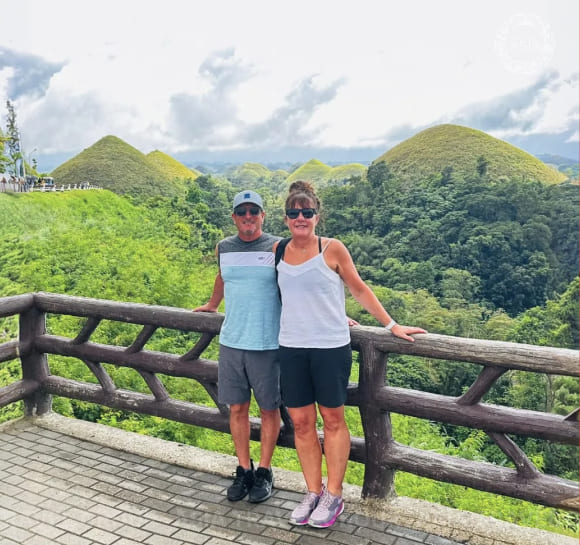
Bohol, Philippines
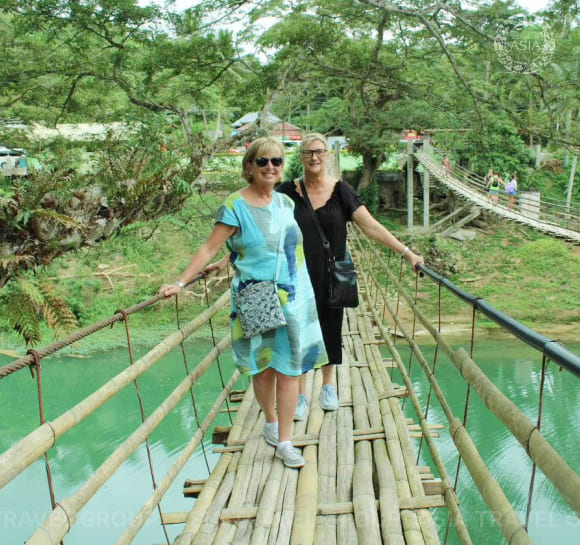
Bohol, Philippines
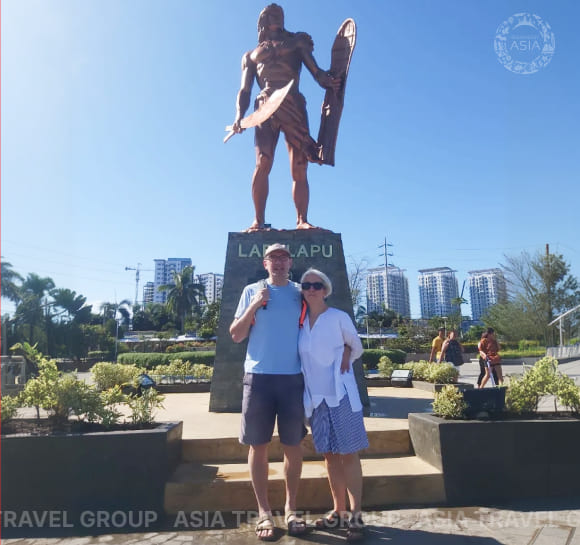
Cebu, Philippines
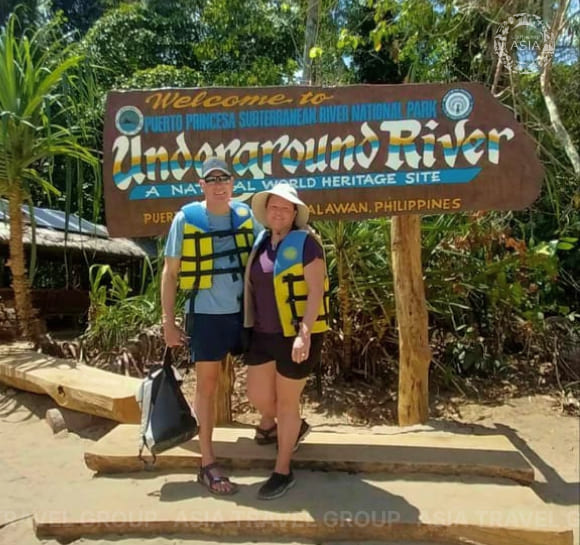
Puerto Princesa, Philippines
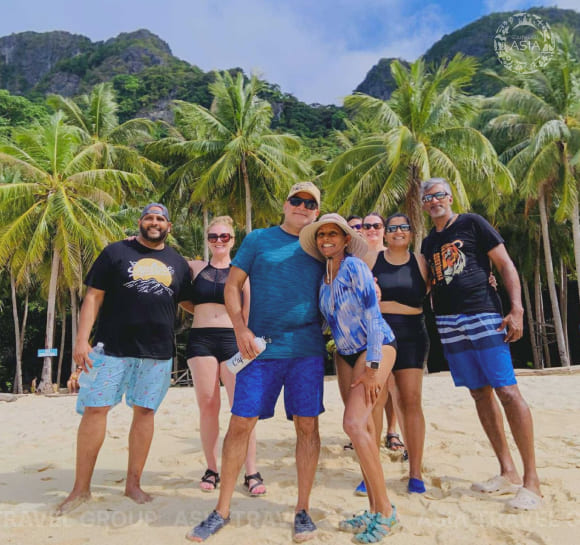
El Nido, Philippines
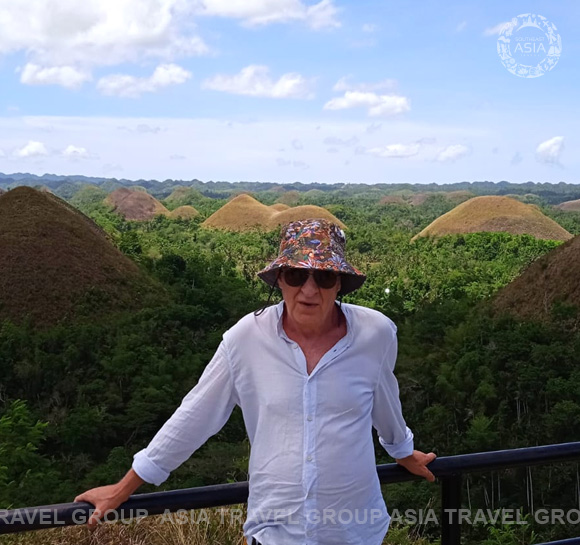
Bohol, Philippines
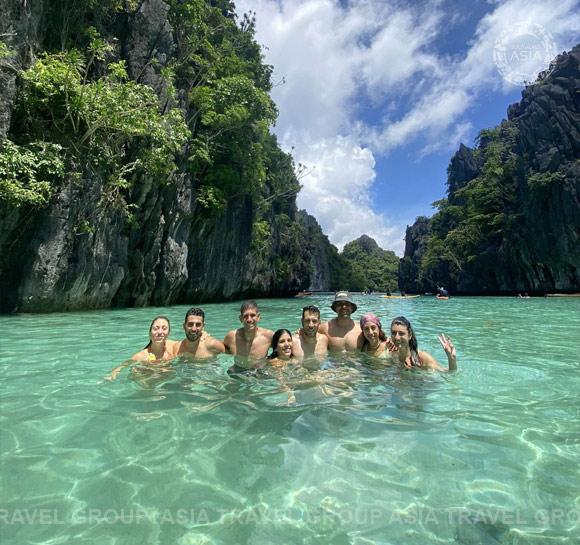
El Nido, Philippines
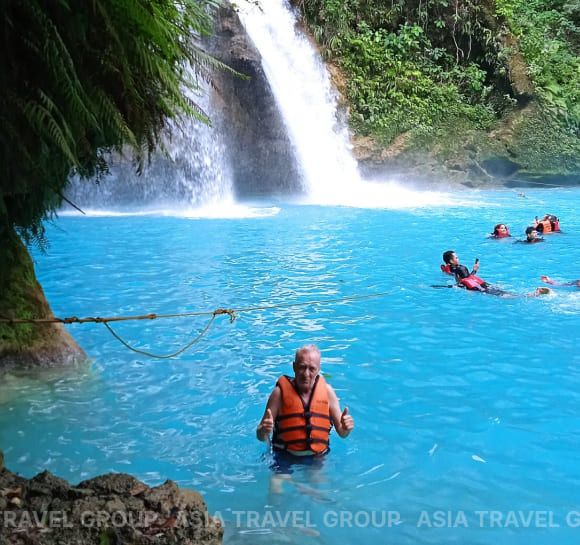
Cebu, Philippines
BEST philippines TOURS
From exploring lively cities and pristine beaches to discovering historical landmarks and savoring local flavors, our diverse tour options promise cherished moments in the Philippines.
Get ready for the ultimate family getaway with our Memorable Family Vacation in the Philippines, designed especially for families with children. Over 15 days, you’ll experience a perfect mix of beach time, nature exploration, and cultural discovery. Explore the vibrant culture of Manila, from historical sites to fun-filled museums. Relax on the stunning beaches of Coron and El Nido, where crystal-clear waters and white-sand shores provide the ideal setting for family fun. In Cebu and Bohol, your little ones will surely be excited to see the adorable tarsiers in Bohol and enjoy a visit to the Cebu Safari and Adventure Park, where they can meet exotic animals in a safe and interactive environment. This exciting adventure is packed with activities that will thrill both parents and kids alike! Let it be the foundation of lifelong memories as you embark on an extraordinary family vacation full of excitement, laughter, and adventure.
Only From $4950/person
All Inclusive ServiceThis Tour
Planning for a dream honeymoon in the Philippines? Join this 14-day romantic escape through some of the country’s most breathtaking destinations, starting in the vibrant heart of Manila before retreating to the serene, palm-fringed shores of Port Barton. Continue your journey to the stunning paradise of El Nido, where crystal-clear waters and towering limestone cliffs await, before discovering the pristine beauty of Coron, famous for its shipwrecks, lagoons, and idyllic islands. This unforgettable honeymoon adventure is designed to offer a perfect blend of luxury, relaxation, and adventure, allowing you to create lifelong memories with your better half while immersing yourselves in the unparalleled natural beauty and intimate charm of the Philippines.
Only From $4620/person
All Inclusive ServiceThis Tour
Embark on a remarkable 13-day adventure through the Philippines, discovering the country’s diverse beauty across three of its most captivating islands: Siargao, Bohol, and El Nido. Begin with the laid-back charm of Siargao, where you’ll ride the waves at Cloud 9, explore tranquil mangroves, and relax on pristine beaches. Continue to Bohol, marvel at the iconic Chocolate Hills, visit the unique tarsiers, cruise along the serene Loboc River, and explore the laid-back Balicasag Island. Finally, unwind in El Nido, where island-hopping through hidden lagoons, white-sand beaches, and dramatic limestone cliffs awaits. This immersive tour promises an unforgettable journey filled with adventure, relaxation, and awe-inspiring beauty.
Only From $4160/person
All Inclusive ServiceThis Tour
This meticulously crafted journey takes you deep into the Philippines’s most iconic and awe-inspiring destinations, blending natural beauty with rich cultural experiences. From the serene shores of Port Barton to the stunning limestone cliffs of El Nido and the crystal-clear waters of Coron, this tour promises to immerse you in the diverse wonders of this remarkable archipelago. Explore the vibrant underwater world of Cebu and Moalboal, where colorful reefs and marine life await, and dive into the history and heritage of Bohol, home to the famous Chocolate Hills and the enchanting Tarsier Sanctuary. With expert guides, comfortable accommodation, and a mix of relaxed beach days and cultural explorations, The Ultimate Philippines 18-Day Tour is your gateway to discovering the Philippines at its best.
Only From $6030/person
All Inclusive ServiceThis Tour
Discover the diverse beauty and rich culture of the Philippines as you travel through Manila, El Nido, Bohol, Cebu, and Siargao on this ultimate 16-day adventure. From the bustling streets of Manila, steeped in history and modern vibrance, to the pristine beaches and dramatic limestone cliffs of El Nido, this journey takes you through some of the country’s most iconic destinations. Explore the famous Chocolate Hills and encounter the adorable tarsiers in Bohol, immerse yourself in Cebu’s vibrant heritage and stunning coastlines, and finally, unwind in Siargao, a surfer’s paradise known for its laid-back charm and stunning natural landscapes. This comprehensive tour offers you the perfect introduction to the tropical paradise of the Philippines.
Only From $5280/person
All Inclusive ServiceThis Tour
Get ready to unwind and immerse yourself in the sun-kissed beauty of the Philippines with our Philippines Beach Escape 12-Day Tour. This unforgettable journey takes you to some of the country’s most breathtaking beach destinations, offering the perfect blend of relaxation, adventure, and cultural exploration. Starting in Cebu, you’ll enjoy pristine beaches, vibrant marine life, and rich history before heading to the idyllic island of Bohol, where white-sand shores and the unique Chocolate Hills await. Next, travel to El Nido, a tropical paradise famous for island hopping and snorkeling. End your escape in Manila, experiencing a lively contrast with city life and historic landmarks. With a mix of serene beach days and a touch of local culture, this tour is the ideal way to discover the best of the Philippines’ coastal wonders.
Only From $3900/person
All Inclusive ServiceThis Tour
This immersive 13-day experience showcases the Philippines’ diverse natural beauty, promising both adventure and tranquility at every turn. Start your adventure in Manila, flying to El Nido, where you'll explore stunning lagoons, towering limestone cliffs, and crystal-clear waters while island-hopping to secluded beaches and vibrant coral reefs. Continue to Bohol, home to the famous Chocolate Hills, the world’s smallest primates, the tarsiers, and a serene Loboc River cruise. Conclude your tour in Siargao, a paradise for nature lovers, where you’ll unwind on beautiful beaches, surf the legendary Cloud 9, and explore the island’s lush mangroves and hidden gems.
Only From $4030/person
All Inclusive ServiceThis Tour
This 12-day adventure offers an extraordinary journey through the heart of the Philippines, where you’ll experience the diverse beauty and rich culture of one of Southeast Asia’s most stunning countries. From the bustling streets of Manila to the tranquil beaches of Port Barton, the dramatic landscapes of El Nido, and the crystal-clear waters of Coron, this carefully curated tour allows you to indulge in a perfect mix of culture, adventure, and natural beauty. Explore pristine beaches, vibrant coral reefs, and hidden lagoons, creating memories to last a lifetime.
Only From $3960/person
All Inclusive ServiceThis Tour
Discover the best of the West Philippines with this immersive 10-day Classic Tour, where history, culture, and natural beauty come together. Begin your adventure in Manila, exploring the historic Intramuros and indulging in a flavorful street food tour through the city’s vibrant streets. Then, unwind on the pristine beaches of Port Barton, a hidden paradise offering crystal-clear waters and serene landscapes. Finish your journey with island-hopping in El Nido, where breathtaking lagoons, dramatic cliffs, and white-sand beaches await. This unforgettable Philippines tour promises a perfect blend of urban exploration, tropical relaxation, and adventurous escapades.
Only From $3050/person
All Inclusive ServiceThis Tour
Get ready for an unforgettable 8-day adventure through the heart of the Central Visayas Region, where you’ll experience the best of both Bohol and Cebu. From the iconic Chocolate Hills and the adorable tarsiers of Bohol to the vibrant culture and historical landmarks of Cebu, this journey offers an immersive exploration of the region's natural beauty, rich history, and unique cultural heritage. Dive into crystal-clear waters, visit stunning white-sand beaches, and uncover centuries-old Spanish-era churches while enjoying the warm hospitality and vibrant local traditions that make these islands so special. Whether you're a nature lover, history enthusiast, or beach seeker, this trip promises a perfect blend of cherished experiences across two of the Philippines' most beloved destinations.
Only From $2560/person
All Inclusive ServiceThis Tour
Embark on the ultimate 16-day adventure through the Philippines, specially designed for thrill-seekers and nature enthusiasts alike. This action-packed journey will take you to some of the country’s most extraordinary destinations, offering a mix of heart-pounding activities and breathtaking landscapes. Dive into the crystal-clear waters of Oslob to swim alongside the gentle giants, whale sharks, in one of the most unique wildlife encounters on Earth. Marvel at the surreal beauty of Bohol’s Chocolate Hills, an otherworldly landscape of conical hills that change color with the seasons. Experience the thrill of island hopping in El Nido and Coron, where pristine beaches, hidden lagoons, and dramatic limestone cliffs set the stage for unforgettable adventures. Whether you’re zip-lining, diving, or exploring rugged terrains, this tour offers a perfect blend of adrenaline-pumping experiences and jaw-dropping natural beauty, making it a dream getaway for adventure lovers.
Only From $5360/person
All Inclusive ServiceThis Tour
Experience 16 days of romance and adventure on this once-in-a-lifetime journey through the Philippines, designed specifically for honeymooners and couples. You'll explore the idyllic beauty of the country’s most celebrated destinations, from the pristine beaches of El Nido and Siargao to the rich cultural heritage of Manila and Cebu. This tour offers plenty of time to unwind by the turquoise waters and white sands, as well as to discover the warmth of Filipino hospitality, indulge in delicious local cuisine, and create memories that will last a lifetime. Especially, don't miss the rare opportunity to swim alongside the gentle whale sharks in their natural habitat in Oslob. Whether you're looking for quiet beach days, thrilling wildlife encounters, or cultural exploration, this honeymoon is the ultimate escape for couples seeking both relaxation and adventure in one of the most beautiful countries in the world. Let this journey be the perfect start to your new life together.
Only From $5200/person
All Inclusive ServiceThis Tour
Packed with fun-filled adventures and stunning destinations, the Incredible Family Vacation in the Philippines is one for the books to experience the best the Philippines has to offer together. Start in Cebu, where families can dive into the crystal-clear waters to swim with colorful fish and enjoy interactive encounters with exotic animals in a safari park. Next, see the natural wonders of Bohol, including the iconic Chocolate Hills and the world’s smallest primates at the Tarsier Sanctuary. Then, head to the picturesque beaches of El Nido and Port Barton, where you’ll island-hop through turquoise lagoons, snorkel alongside lively coral reefs, and relax on pristine sands. The 15-day adventure culminates in Manila, where you can immerse your family in the city’s vibrant culture, from historic sites to lively markets and family-friendly activities.
Only From $4875/person
All Inclusive ServiceThis Tour
Discover the hidden gems of the Philippines on our extraordinary 18-day journey, designed for those seeking an immersive blend of culture, adventure, and breathtaking natural beauty. This in-depth tour invites you to explore the rich cultural heritage of Cebu and Manila, swim with the gentle giants of the sea, the whale sharks, in Oslob, and discover the natural wonders of Bohol, from the iconic Chocolate Hills to the adorable tarsiers. Then, unwind in the stunning beach destinations of El Nido and Boracay, where crystal-clear waters, white sandy stretches, and vibrant coral reefs offer the perfect setting for relaxation and thrills. Join us on this unforgettable escape where every day promises something new, exciting, and simply mesmerizing.
Only From $5940/person
All Inclusive ServiceThis Tour
Journey through the stunning archipelago of the Philippines, where paradise meets culture in an extraordinary blend of serene beaches, crystal-clear waters, and rich heritage. Over 12 days, this meticulously curated tour invites you to immerse yourself in the breathtaking natural beauty of Coron, El Nido, and Boracay, three of the Philippines’ most iconic beach destinations. Spend your days lounging on powdery white sands, snorkeling in vibrant coral gardens, and sailing across turquoise lagoons as you indulge in the finest coastal experiences. You will also venture into the heart of Manila to discover the country’s fascinating history, from colonial-era landmarks to the bustling streets of Intramuros. Let the Philippines captivate you with its timeless charm and make every moment there filled with awe and wonder.
Only From $4020/person
All Inclusive ServiceThis Tour
This meticulously crafted journey takes you deep into the Philippines’s most iconic and awe-inspiring destinations, blending natural beauty with rich cultural experiences. From the serene shores of Port Barton to the stunning limestone cliffs of El Nido and the crystal-clear waters of Coron, this tour promises to immerse you in the diverse wonders of this remarkable archipelago. Explore the vibrant underwater world of Cebu and Moalboal, where colorful reefs and marine life await, and dive into the history and heritage of Bohol, home to the famous Chocolate Hills and the enchanting Tarsier Sanctuary. With expert guides, comfortable accommodation, and a mix of relaxed beach days and cultural explorations, The Ultimate Philippines 18-Day Tour is your gateway to discovering the Philippines at its best.
Only From $6030/person
All Inclusive ServiceThis Tour
Discover the diverse beauty and rich culture of the Philippines as you travel through Manila, El Nido, Bohol, Cebu, and Siargao on this ultimate 16-day adventure. From the bustling streets of Manila, steeped in history and modern vibrance, to the pristine beaches and dramatic limestone cliffs of El Nido, this journey takes you through some of the country’s most iconic destinations. Explore the famous Chocolate Hills and encounter the adorable tarsiers in Bohol, immerse yourself in Cebu’s vibrant heritage and stunning coastlines, and finally, unwind in Siargao, a surfer’s paradise known for its laid-back charm and stunning natural landscapes. This comprehensive tour offers you the perfect introduction to the tropical paradise of the Philippines.
Only From $5280/person
All Inclusive ServiceThis Tour
Get ready to unwind and immerse yourself in the sun-kissed beauty of the Philippines with our Philippines Beach Escape 12-Day Tour. This unforgettable journey takes you to some of the country’s most breathtaking beach destinations, offering the perfect blend of relaxation, adventure, and cultural exploration. Starting in Cebu, you’ll enjoy pristine beaches, vibrant marine life, and rich history before heading to the idyllic island of Bohol, where white-sand shores and the unique Chocolate Hills await. Next, travel to El Nido, a tropical paradise famous for island hopping and snorkeling. End your escape in Manila, experiencing a lively contrast with city life and historic landmarks. With a mix of serene beach days and a touch of local culture, this tour is the ideal way to discover the best of the Philippines’ coastal wonders.
Only From $3900/person
All Inclusive ServiceThis Tour
This immersive 13-day experience showcases the Philippines’ diverse natural beauty, promising both adventure and tranquility at every turn. Start your adventure in Manila, flying to El Nido, where you'll explore stunning lagoons, towering limestone cliffs, and crystal-clear waters while island-hopping to secluded beaches and vibrant coral reefs. Continue to Bohol, home to the famous Chocolate Hills, the world’s smallest primates, the tarsiers, and a serene Loboc River cruise. Conclude your tour in Siargao, a paradise for nature lovers, where you’ll unwind on beautiful beaches, surf the legendary Cloud 9, and explore the island’s lush mangroves and hidden gems.
Only From $4030/person
All Inclusive ServiceThis Tour
This 12-day adventure offers an extraordinary journey through the heart of the Philippines, where you’ll experience the diverse beauty and rich culture of one of Southeast Asia’s most stunning countries. From the bustling streets of Manila to the tranquil beaches of Port Barton, the dramatic landscapes of El Nido, and the crystal-clear waters of Coron, this carefully curated tour allows you to indulge in a perfect mix of culture, adventure, and natural beauty. Explore pristine beaches, vibrant coral reefs, and hidden lagoons, creating memories to last a lifetime.
Only From $3960/person
All Inclusive ServiceThis Tour
Discover the best of the West Philippines with this immersive 10-day Classic Tour, where history, culture, and natural beauty come together. Begin your adventure in Manila, exploring the historic Intramuros and indulging in a flavorful street food tour through the city’s vibrant streets. Then, unwind on the pristine beaches of Port Barton, a hidden paradise offering crystal-clear waters and serene landscapes. Finish your journey with island-hopping in El Nido, where breathtaking lagoons, dramatic cliffs, and white-sand beaches await. This unforgettable Philippines tour promises a perfect blend of urban exploration, tropical relaxation, and adventurous escapades.
Only From $3050/person
All Inclusive ServiceThis Tour
Get ready for an unforgettable 8-day adventure through the heart of the Central Visayas Region, where you’ll experience the best of both Bohol and Cebu. From the iconic Chocolate Hills and the adorable tarsiers of Bohol to the vibrant culture and historical landmarks of Cebu, this journey offers an immersive exploration of the region's natural beauty, rich history, and unique cultural heritage. Dive into crystal-clear waters, visit stunning white-sand beaches, and uncover centuries-old Spanish-era churches while enjoying the warm hospitality and vibrant local traditions that make these islands so special. Whether you're a nature lover, history enthusiast, or beach seeker, this trip promises a perfect blend of cherished experiences across two of the Philippines' most beloved destinations.
Only From $2560/person
All Inclusive ServiceThis Tour
Embark on the ultimate 16-day adventure through the Philippines, specially designed for thrill-seekers and nature enthusiasts alike. This action-packed journey will take you to some of the country’s most extraordinary destinations, offering a mix of heart-pounding activities and breathtaking landscapes. Dive into the crystal-clear waters of Oslob to swim alongside the gentle giants, whale sharks, in one of the most unique wildlife encounters on Earth. Marvel at the surreal beauty of Bohol’s Chocolate Hills, an otherworldly landscape of conical hills that change color with the seasons. Experience the thrill of island hopping in El Nido and Coron, where pristine beaches, hidden lagoons, and dramatic limestone cliffs set the stage for unforgettable adventures. Whether you’re zip-lining, diving, or exploring rugged terrains, this tour offers a perfect blend of adrenaline-pumping experiences and jaw-dropping natural beauty, making it a dream getaway for adventure lovers.
Only From $5360/person
All Inclusive ServiceThis Tour
Experience 16 days of romance and adventure on this once-in-a-lifetime journey through the Philippines, designed specifically for honeymooners and couples. You'll explore the idyllic beauty of the country’s most celebrated destinations, from the pristine beaches of El Nido and Siargao to the rich cultural heritage of Manila and Cebu. This tour offers plenty of time to unwind by the turquoise waters and white sands, as well as to discover the warmth of Filipino hospitality, indulge in delicious local cuisine, and create memories that will last a lifetime. Especially, don't miss the rare opportunity to swim alongside the gentle whale sharks in their natural habitat in Oslob. Whether you're looking for quiet beach days, thrilling wildlife encounters, or cultural exploration, this honeymoon is the ultimate escape for couples seeking both relaxation and adventure in one of the most beautiful countries in the world. Let this journey be the perfect start to your new life together.
Only From $5200/person
All Inclusive ServiceThis Tour
Packed with fun-filled adventures and stunning destinations, the Incredible Family Vacation in the Philippines is one for the books to experience the best the Philippines has to offer together. Start in Cebu, where families can dive into the crystal-clear waters to swim with colorful fish and enjoy interactive encounters with exotic animals in a safari park. Next, see the natural wonders of Bohol, including the iconic Chocolate Hills and the world’s smallest primates at the Tarsier Sanctuary. Then, head to the picturesque beaches of El Nido and Port Barton, where you’ll island-hop through turquoise lagoons, snorkel alongside lively coral reefs, and relax on pristine sands. The 15-day adventure culminates in Manila, where you can immerse your family in the city’s vibrant culture, from historic sites to lively markets and family-friendly activities.
Only From $4875/person
All Inclusive ServiceThis Tour
Discover the hidden gems of the Philippines on our extraordinary 18-day journey, designed for those seeking an immersive blend of culture, adventure, and breathtaking natural beauty. This in-depth tour invites you to explore the rich cultural heritage of Cebu and Manila, swim with the gentle giants of the sea, the whale sharks, in Oslob, and discover the natural wonders of Bohol, from the iconic Chocolate Hills to the adorable tarsiers. Then, unwind in the stunning beach destinations of El Nido and Boracay, where crystal-clear waters, white sandy stretches, and vibrant coral reefs offer the perfect setting for relaxation and thrills. Join us on this unforgettable escape where every day promises something new, exciting, and simply mesmerizing.
Only From $5940/person
All Inclusive ServiceThis Tour
Journey through the stunning archipelago of the Philippines, where paradise meets culture in an extraordinary blend of serene beaches, crystal-clear waters, and rich heritage. Over 12 days, this meticulously curated tour invites you to immerse yourself in the breathtaking natural beauty of Coron, El Nido, and Boracay, three of the Philippines’ most iconic beach destinations. Spend your days lounging on powdery white sands, snorkeling in vibrant coral gardens, and sailing across turquoise lagoons as you indulge in the finest coastal experiences. You will also venture into the heart of Manila to discover the country’s fascinating history, from colonial-era landmarks to the bustling streets of Intramuros. Let the Philippines captivate you with its timeless charm and make every moment there filled with awe and wonder.
Only From $4020/person
All Inclusive ServiceThis Tour

With over 16 years of experience, our team will help you choose the perfect for your adventure.

Authentic

Flexible

Persionalized

24/7 Support


philippines TOUR styles
Whether it’s a thrilling adventure, beach hunt, or foodie trip, choose your preferred travel style and embark on a memorable journey through the stunning archipelago of the Philippines.
philippines destinations
The Philippines, a tropical paradise of over 7,000 islands, offers pristine beaches, crystal-clear water, and rich culture. Check out its iconic destinations and plan your own adventure today!
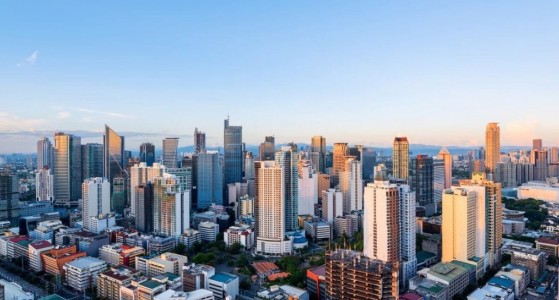
Manila is the Philippines' bustling capital city located on the island of Luzon. It is the starting point for all visitors before jumping off to other areas of the country by air or by boat. As a melting pot of cultures with multiple Spanish and Chinese influences, Manila is full of things to see and do, making it a lively destination to explore. Take a step back into the rich history of the Philippines with a walking tour of Intramuros, the walled city of Manila, including visits to Fort Santiago, a citadel used as a defensive fortress built by Spanish conquistador Miguel López de Legazpi, and the Baroque-style San Agustin Church, the oldest stone church in the country. Stop by Rizal Park, one of the most significant landmarks in the Philippines. The park is named after Dr. Jose Rizal, the country's national hero who was executed in the park grounds, resulting in the flames of the 1896 Philippine Revolution against the Spanish Empire. Home to the oldest Chinatown in the world, it is well worth spending a day immersing yourself in the Chinese culture and history of the Binondo District. This is a hub for authentic Chinese restaurants, trinkets, and the ultimate place to shop for bargains. Reowning a big contemporary art, there are many galleries, art spaces, design shops, and museums throughout Manila. Graffiti and murals can be seen almost everywhere you look, from building facades to walkways, underpasses, demolished walls, and pavements... This is the way people showcase their perspectives about the country’s culture, history, and even political issues.
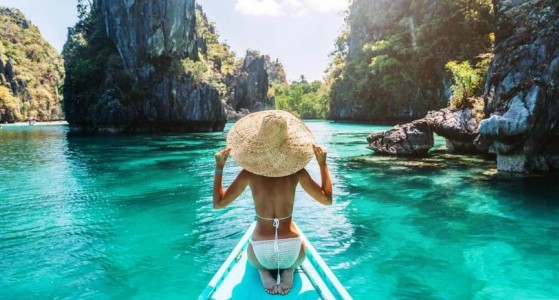
El Nido covers an area of about 400 sq km at the northern tip of Palawan Island, featuring striking limestone cliffs, mesmerizing lagoons, and endless beaches in between azure waters. It is the launch pad for the daytime excursions to the surrounding limestone islands of the stunning Bacuit Bay archipelago, such as Simizu, Cadlao, Dilumacad, and Matinloc... Sea kayaking is an eco-friendly way of exploring each island. Snorkeling and scuba diving are the top activities on the bucket list of many travelers, thanks to the abundant marine life and coral reefs around most of the islands. On land, exploring the rainforest in search of waterfalls and exotic flora and fauna species will be rewarding travel experiences. Despite its remote location, El Nido hosts a decent choice of pleasant night spots for you to party or relax in after dark. Whether you spend the night in town or at one of the beaches nearby, you will always find a suitable spot to have a drink and socialize at night. Consider Pukka Bar in town or Republica Sunset Bar on Corong Corong Beach for your chilling time there.
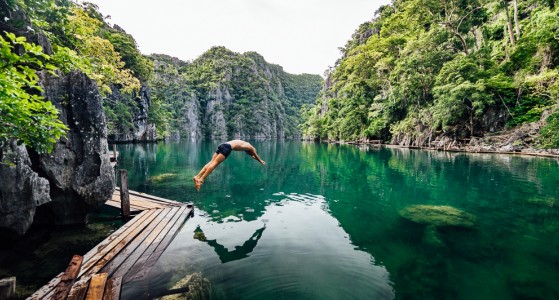
Coron is one of Palawan’s most popular beach and island destinations. This paradise-like getaway comprises the eastern half of Busuanga Island, Coron Island itself, and 50 other islands that form part of the Calamian Archipelago. It is the starting point for boat tours to jagged limestone islets, shallow-water coral reefs, and fascinating shipwreck sites—including remnants of seven Japanese World War II vessels sunk in September 1944. For a less-technical underwater adventure, hop on a boat to neighboring Coron Island and experience the mind-boggling beauty of Kayangan Lake. Dubbed “the blue lagoon,” the world-famous lake is tucked among surreal rock formations visible above and below the surface of the water. There is a volcanic hot spring feeding the lake that makes the water temperature warm as you dive down. Home to pristine beaches and picturesque lagoons, Coron is one of the best for a visit with kids, offering everything the Philippines is famous for in one fabulous family adventure smorgasbord. Because family is the culture in the Philippines, if you travel to the Philippines with children, you will be treated with hospitality, kindness, and support like nowhere else. Aside from islands, beaches, lagoons, lakes, and shipwrecks, Coron also offers a different experience that you probably should not miss when you visit the town—the Calauit Safari experience. This ecopark, located at Calauit Island in Busuanga, offers something that is a little bit similar to an African safari experience. The animals seen in the park were said to be brought from the savannahs of Kenya to the island, including giraffes, zebras, pythons, Calamian deer, freshwater crocodiles, and a civet cat. While some of the animals are roaming around freely, the others are held in captivity, especially the pythons and crocodiles.
Vigan, the capital of Ilocos Sur province, is located in the northern area of Luzon. It is the only UNESCO World Heritage City in the country for being the best-preserved example of a planned Spanish colonial town since the 16th century in Asia. With its cobblestone streets, ancestral houses, and historic landmarks such as St. Paul’s Metropolitan Cathedral and Plaza Salcedo, Vigan offers a glimpse into the country’s Spanish-era legacy. Embark on a walking tour through the Mestizo district of Vigan to admire its old-world charm. While walking down Calle Crisologo, you will encounter rows of wonderfully preserved houses that create a wonderful pastiche of Colonial European and Filipino designs - an embodiment of the east-meets-west narrative. Learn about the rich history of Vigan and the stories of the families who have occupied these ancient houses for generations. During your tour, visit historical landmarks such as the Crisologo Museum, Burgos Museum, and the Syquia Mansion, each holding its distinct tales and treasures, providing visitors with a deeper understanding of Filipino-Spanish history and culture. Another thing you should do in Vigan is to take a horse-drawn carriage (also called kalesa) through the cobblestone streets of the Vigan Heritage Village to learn about the history and stories behind the Spanish-style colonial old buildings such as the St. Paul’s Cathedral, the Archbishop’s Palace, and the City Hall... Soak in the atmosphere of living history and take photos of this UNESCO World Heritage site while enjoying a leisurely ride before dusk. A good way to end your day in Vigan is to stop at Plaza Salced for the spectacular dancing fountain show. The daily evening event at 19:30, set against the backdrop of the Provincial Capitol building, captivates audiences with an elaborate display of water, light, and music. It is an enchanting experience that both young and old will enjoy, offering a delightful way to relax after a day of touring. Although this activity is light-hearted, it also reflects the blend of tradition and modernity that Vigan embodies.
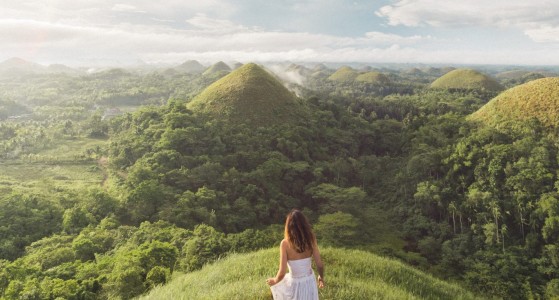
Bohol, the roughly circular and mid-sized island in the Central Philippines, is a destination that seamlessly blends natural beauty, rich history, and captivating culture. It is home to one of the country's most iconic landmarks: the Chocolate Hills. This geological site is composed of more than a thousand perfectly cone-shaped hills that turn brown during the dry season, resembling a giant box of chocolates. Climb up to the viewing platform for panoramic views that will leave you in awe. The best vantage points are at the Chocolate Hills Complex or Sagbayan Peak, where you can truly appreciate the vastness of the unique landscape. Close to the hills, catch a glimpse of one of nature’s most adorable creatures, the tiny Philippine tarsier. Weighing only up to five ounces, tarsiers are nocturnal primates with huge eyes and a shy demeanor. Rarely seen in the wild, these smallest and cutest creatures can be spotted up close at the Tarsier Conservation Area. Lush greenery and serene waters await you in the Loboc River. Cruise along the calm and meandering river to experience Bohol’s natural beauty. Some cruises even offer cultural performances, giving you a glimpse into the island’s rich traditions. For underwater enthusiasts, Bohol offers incredible marine life with white-sand beaches and vibrant coral reefs beckoning on Panglao Island. This island is also the departure point for water adventures like dolphin and whale-watching tours and dive trips in Balicasag Island Marine Sanctuary. Go into the deep to swim among the sanctuary’s sea turtles, explore colorful coral gardens, and steep submarine cliffs.
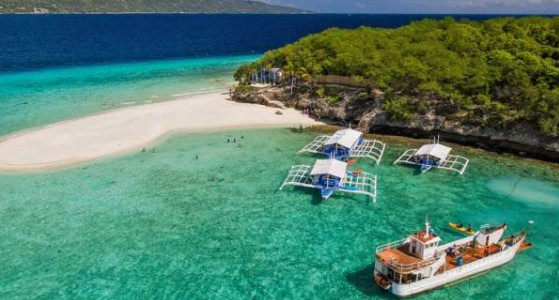
Cebu is a tropical urban center located in the Central Visayas region of the Philippines, which offers a blend of natural beauty, historical richness, and vibrant urban life. As the oldest city in the country, it boasts a rich history dating back to the Spanish colonial period, evident in landmarks such as the Basilica Minore del Santo Niño, the oldest Roman Catholic church in the Philippines, and the Fort San Pedro, a historic fortification offering a glimpse into Cebu's colonial past. The city is a gateway to more than 150 islands, including the famous Mactan Island known for its pristine beaches and world-class diving locations; the unspoiled Camotes Islands where you can visit caves, beaches, and natural pools; the Nalusuan Island, a marine sanctuary ideal for snorkeling; the Malapascua Island with its thresher shark sightings; and the Oslob village in the south that offers the unique experience of swimming with whale sharks. Designated as a Creative City by UNESCO in 2019, Cebu is also well known as a hub for craftsmanship, creativity, and gastronomy. The city is a host of a variety of colorful and lively festivals throughout the year; nevertheless, nothing beats the beauty and bustling crowd of the Sinulog Festival featuring colorful parades and traditional dance rituals. Considered as an attractive destination for both leisure and business travelers, Cebu offers a perfect balance of urban comforts and natural attractions, from bustling markets and shopping malls to nearby waterfalls and mountains. The local cuisine, highlighted by the Cebuano lechon (roasted pig), is a must-try.
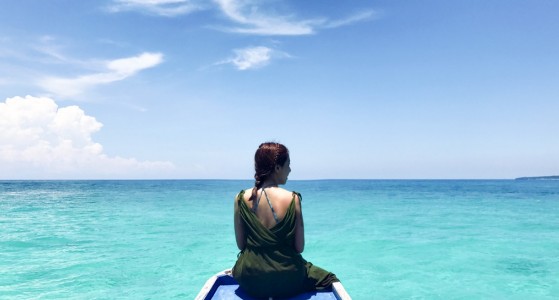
Boracay is a small island in the central Philippines, famed for its stunning four-kilometer White Beach, which is consistently ranked among the best beaches in the world. Nevertheless, White Beach is only the starter; Boracay Island boasts other secluded coves, vibrant coral reefs, and lush marine life, perfect for keeping your sunny days filled with exciting activities such as diving into the clear waters to discover the underwater world, soaring above the sea with parasailing, or paddling along the gentle waves with kayaking. For those who prefer a more relaxed pace, a sunset cruise with cocktails in hand offers a magical end to any day on the island. Boasting sugar-white beaches, crystalline coves, and all manner of water adventures, Boracay is the jumping-off point for a variety of island-hopping adventures. Spend a day visiting iconic spots like Puka Shell Beach, known for its powdery white sand and serene ambiance; the Coral Garden, a snorkeler's paradise rich with underwater biodiversity. Then enjoy a barbecue lunch on the beach, a perfect complement for a thrilling outdoor day. Don't miss the Magic Island, where the adrenaline seekers used to jump off the cliffs and dive into the sparkling sea. If water activities are not your vibe, try to discover a varied array of outdoor activities and sights across Boracay’s three districts (also called barangays): Yapak on the northern end, Balabag in the middle, and Manoc-Manoc in the south. To get around on the island, use environmentally friendly electric tricycles or e-trikes to get around on land and traditional paraws or double outrigger sailboats to travel by water. Boracay is also known for its lively nightlife with numerous bars, restaurants, and entertainment options. This attracts a younger crowd and those looking for a vibrant social scene.
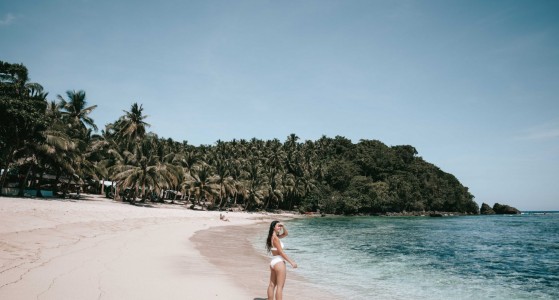
Siargao, a stunning teardrop-shaped island off the northeastern coast of Mindanao Region, is renowned as the surfing capital of the Philippines. Its global fame soared when Conde Nast Traveler readers named it the Best Island in the World in 2019. With its 48 islands and islets divided into nine municipalities, Siargao is home to one of the world's most renowned and challenging surfing waves. While Cloud 9 is the iconic surf spot that put Siargao on the map, it still has so much more to uncover, from cave exploration and rock climbing to kayaking, paddle boarding, and island hopping. Home to numerous breathtaking beaches, including Sugba Lagoon, Naked Island, and Daku Island, Siargao's beaches offer white sand, a lush palm tree canopy, and beautiful rock formations, making them perfect for swimming, snorkeling, and sunbathing. The island is also a treasured preserve for nature lovers, featuring some spectacular scenic scenery surrounded by clear and deep waters teeming with an abundance of sea life and coral reefs. Apart from the unspoiled nature, Siargao is well-known for its culture and nightlife. The local culture is rich with many traditions rooted in the pre-colonial history and religious festivals marked by vibrant processions, music, and feasting. The local version of Catholic traditions blends with indigenous beliefs, creating a unique cultural expression. After a day of adventure, spend time unwinding with live music, cold drinks, and thriving beach parties in General Luna. Start your night at Bravo or Kermit before heading to RumBar for some late-night fun.
Iloilo, a province on Panay Island in the Visayas region of the Philippines, is a destination known for its historical landmarks, quaint beaches and islands, heritage homes, plus tasty and unique cuisine. Often called 'the heart of the Philippines', Iloilo invites travelers to experience a mix of vibrant city life and serene escapes to beaches, mountains, and hidden lagoons. The province capital, Iloilo City, is a hub of culture and history where ancestral homes, beautiful churches, and historic buildings tell stories of a rich past. Take a leisurely photo walk or stroll in Calle Real, officially known as J.M. Basa Street, where Spanish-era structures from the 1800s still stand. Known as “Heritage Street” for its collection of restored buildings, Calle Real showcases a delightful mix of past and present, with modern shops and cafes now occupying the once-residential upper floors of the buildings. This blend of history and modern life makes Calle Real Street a vibrant yet significant destination. Walk along the stretch of the River Esplanade for a view of the gently flowing river, sit on benches to appreciate the surrounding tranquility, or watch the colorful sunset. The Esplanade scenic riverside walkway spanning from Diversion Road to Carpenter’s Bridge, bridging the Molo and Mandurriao neighborhoods, is dotted with restaurants where one can taste local Ilonggo cuisine. Being a good base for exploring the nearby rural Guimaras Island, Iloilo is a jumping-off point for tours further north through Panay to Boracay as well. It is also widely known throughout the country for its wild and exuberant Dinagyang Fiesta, an extremely colorful festival that is held on the fourth Sunday of every January to honor the Santo Niño (the Child Jesus), commemorate the arrival of Malay settlers, and mark the indigenous Ati tribe's conversion to Christianity. During the festival, the streets come alive with drum beats, chants, elaborate costumes, and headdresses as various tribes compete in a dance competition. Each performance tells a story depicting historical and cultural scenes. For travelers looking to immerse themselves in Filipino culture, the Dinagyang Festival is an event not to be missed.
Siquijor is a 5th provincial income class island province of the Philippines located in the Central Visayas region. Its capital is the municipality also named Siquijor. To the north of Siquijor is Cebu, to the west is Negros, northeast is Bohol, and to the south, across the Bohol Sea, is Mindanao. During the Spanish colonial period of the Philippines, the SpaniaNestled in the Central Visayas region of the Philippines, Siquijor is a small island offering travelers a unique combination of natural beauty, outdoor adventure, rich cultural heritage, and mystical traditions. Renowned for its white sand beaches, crystal-clear waters and vibrant marine biodiversity, Siquijor is a destination for exploring secluded caves, hidden waterfalls; diving to see vibrant coral reefs and diverse marine species up close, including the barracuda reef shark and turtles; going cliff jumping from a rock springboard... Siquijor is truly a treasure trove for adrenaline junkies. The history of Siquijor is as rich and varied as its landscape. Originally inhabited by the indigenous Visayan people, the island was discovered and occupied by the Spanish for over three centuries. Since the 16th century, Spanish missionaries arrived, bringing with them Catholicism and European customs to Siquijor that shaped a major part of the local people's cultural heritage and identity nowadays. Uncover the history of Siquijor with a visit to the centuries-old St. Francis of Assisi Church, the Lazi Convent, which showcases the island's rich cultural heritage, and the San Isidro Labrador Church, another historical landmark, standing as a testament to the island's colonial past. Don't miss the chance to experience the local healing traditions with faith healers and herbalists practicing age-old rituals. The island's mystical reputation is further enhanced by the eerie yet fascinating Balete Tree, where you can have a relaxing fish spa experience by putting your feet in the natural pool. Enjoy the unique feeling of sitting under the tree's shade, being gently nibbled by tiny fishes in a calm surrounding.rds called the island Isla del Fuego (Island of Fire). Siquijor is commonly associated with mystic traditions that the island's growing tourism industry capitalizes on.
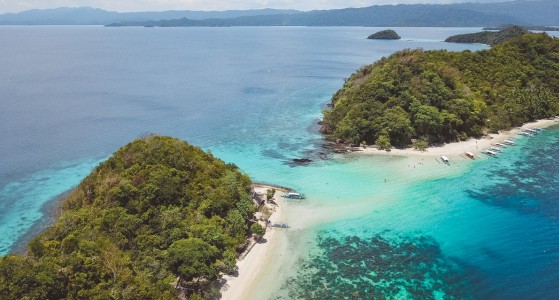
Port Barton is a small coastal village which is located in the San Vicente area of Palawan Island. If you are looking for a hidden paradise with a peaceful atmosphere, some of the most untouched...

Manila is the Philippines' bustling capital city located on the island of Luzon. It is the starting point for all visitors before jumping off to other areas of the country by air or by boat. As a melting pot of cultures with multiple Spanish and Chinese influences, Manila is full of things to see and do, making it a lively destination to explore. Take a step back into the rich history of the Philippines with a walking tour of Intramuros, the walled city of Manila, including visits to Fort Santiago, a citadel used as a defensive fortress built by Spanish conquistador Miguel López de Legazpi, and the Baroque-style San Agustin Church, the oldest stone church in the country. Stop by Rizal Park, one of the most significant landmarks in the Philippines. The park is named after Dr. Jose Rizal, the country's national hero who was executed in the park grounds, resulting in the flames of the 1896 Philippine Revolution against the Spanish Empire. Home to the oldest Chinatown in the world, it is well worth spending a day immersing yourself in the Chinese culture and history of the Binondo District. This is a hub for authentic Chinese restaurants, trinkets, and the ultimate place to shop for bargains. Reowning a big contemporary art, there are many galleries, art spaces, design shops, and museums throughout Manila. Graffiti and murals can be seen almost everywhere you look, from building facades to walkways, underpasses, demolished walls, and pavements... This is the way people showcase their perspectives about the country’s culture, history, and even political issues.

El Nido covers an area of about 400 sq km at the northern tip of Palawan Island, featuring striking limestone cliffs, mesmerizing lagoons, and endless beaches in between azure waters. It is the launch pad for the daytime excursions to the surrounding limestone islands of the stunning Bacuit Bay archipelago, such as Simizu, Cadlao, Dilumacad, and Matinloc... Sea kayaking is an eco-friendly way of exploring each island. Snorkeling and scuba diving are the top activities on the bucket list of many travelers, thanks to the abundant marine life and coral reefs around most of the islands. On land, exploring the rainforest in search of waterfalls and exotic flora and fauna species will be rewarding travel experiences. Despite its remote location, El Nido hosts a decent choice of pleasant night spots for you to party or relax in after dark. Whether you spend the night in town or at one of the beaches nearby, you will always find a suitable spot to have a drink and socialize at night. Consider Pukka Bar in town or Republica Sunset Bar on Corong Corong Beach for your chilling time there.

Coron is one of Palawan’s most popular beach and island destinations. This paradise-like getaway comprises the eastern half of Busuanga Island, Coron Island itself, and 50 other islands that form part of the Calamian Archipelago. It is the starting point for boat tours to jagged limestone islets, shallow-water coral reefs, and fascinating shipwreck sites—including remnants of seven Japanese World War II vessels sunk in September 1944. For a less-technical underwater adventure, hop on a boat to neighboring Coron Island and experience the mind-boggling beauty of Kayangan Lake. Dubbed “the blue lagoon,” the world-famous lake is tucked among surreal rock formations visible above and below the surface of the water. There is a volcanic hot spring feeding the lake that makes the water temperature warm as you dive down. Home to pristine beaches and picturesque lagoons, Coron is one of the best for a visit with kids, offering everything the Philippines is famous for in one fabulous family adventure smorgasbord. Because family is the culture in the Philippines, if you travel to the Philippines with children, you will be treated with hospitality, kindness, and support like nowhere else. Aside from islands, beaches, lagoons, lakes, and shipwrecks, Coron also offers a different experience that you probably should not miss when you visit the town—the Calauit Safari experience. This ecopark, located at Calauit Island in Busuanga, offers something that is a little bit similar to an African safari experience. The animals seen in the park were said to be brought from the savannahs of Kenya to the island, including giraffes, zebras, pythons, Calamian deer, freshwater crocodiles, and a civet cat. While some of the animals are roaming around freely, the others are held in captivity, especially the pythons and crocodiles.

Bohol, the roughly circular and mid-sized island in the Central Philippines, is a destination that seamlessly blends natural beauty, rich history, and captivating culture. It is home to one of the country's most iconic landmarks: the Chocolate Hills. This geological site is composed of more than a thousand perfectly cone-shaped hills that turn brown during the dry season, resembling a giant box of chocolates. Climb up to the viewing platform for panoramic views that will leave you in awe. The best vantage points are at the Chocolate Hills Complex or Sagbayan Peak, where you can truly appreciate the vastness of the unique landscape. Close to the hills, catch a glimpse of one of nature’s most adorable creatures, the tiny Philippine tarsier. Weighing only up to five ounces, tarsiers are nocturnal primates with huge eyes and a shy demeanor. Rarely seen in the wild, these smallest and cutest creatures can be spotted up close at the Tarsier Conservation Area. Lush greenery and serene waters await you in the Loboc River. Cruise along the calm and meandering river to experience Bohol’s natural beauty. Some cruises even offer cultural performances, giving you a glimpse into the island’s rich traditions. For underwater enthusiasts, Bohol offers incredible marine life with white-sand beaches and vibrant coral reefs beckoning on Panglao Island. This island is also the departure point for water adventures like dolphin and whale-watching tours and dive trips in Balicasag Island Marine Sanctuary. Go into the deep to swim among the sanctuary’s sea turtles, explore colorful coral gardens, and steep submarine cliffs.

Cebu is a tropical urban center located in the Central Visayas region of the Philippines, which offers a blend of natural beauty, historical richness, and vibrant urban life. As the oldest city in the country, it boasts a rich history dating back to the Spanish colonial period, evident in landmarks such as the Basilica Minore del Santo Niño, the oldest Roman Catholic church in the Philippines, and the Fort San Pedro, a historic fortification offering a glimpse into Cebu's colonial past. The city is a gateway to more than 150 islands, including the famous Mactan Island known for its pristine beaches and world-class diving locations; the unspoiled Camotes Islands where you can visit caves, beaches, and natural pools; the Nalusuan Island, a marine sanctuary ideal for snorkeling; the Malapascua Island with its thresher shark sightings; and the Oslob village in the south that offers the unique experience of swimming with whale sharks. Designated as a Creative City by UNESCO in 2019, Cebu is also well known as a hub for craftsmanship, creativity, and gastronomy. The city is a host of a variety of colorful and lively festivals throughout the year; nevertheless, nothing beats the beauty and bustling crowd of the Sinulog Festival featuring colorful parades and traditional dance rituals. Considered as an attractive destination for both leisure and business travelers, Cebu offers a perfect balance of urban comforts and natural attractions, from bustling markets and shopping malls to nearby waterfalls and mountains. The local cuisine, highlighted by the Cebuano lechon (roasted pig), is a must-try.

Boracay is a small island in the central Philippines, famed for its stunning four-kilometer White Beach, which is consistently ranked among the best beaches in the world. Nevertheless, White Beach is only the starter; Boracay Island boasts other secluded coves, vibrant coral reefs, and lush marine life, perfect for keeping your sunny days filled with exciting activities such as diving into the clear waters to discover the underwater world, soaring above the sea with parasailing, or paddling along the gentle waves with kayaking. For those who prefer a more relaxed pace, a sunset cruise with cocktails in hand offers a magical end to any day on the island. Boasting sugar-white beaches, crystalline coves, and all manner of water adventures, Boracay is the jumping-off point for a variety of island-hopping adventures. Spend a day visiting iconic spots like Puka Shell Beach, known for its powdery white sand and serene ambiance; the Coral Garden, a snorkeler's paradise rich with underwater biodiversity. Then enjoy a barbecue lunch on the beach, a perfect complement for a thrilling outdoor day. Don't miss the Magic Island, where the adrenaline seekers used to jump off the cliffs and dive into the sparkling sea. If water activities are not your vibe, try to discover a varied array of outdoor activities and sights across Boracay’s three districts (also called barangays): Yapak on the northern end, Balabag in the middle, and Manoc-Manoc in the south. To get around on the island, use environmentally friendly electric tricycles or e-trikes to get around on land and traditional paraws or double outrigger sailboats to travel by water. Boracay is also known for its lively nightlife with numerous bars, restaurants, and entertainment options. This attracts a younger crowd and those looking for a vibrant social scene.

Siargao, a stunning teardrop-shaped island off the northeastern coast of Mindanao Region, is renowned as the surfing capital of the Philippines. Its global fame soared when Conde Nast Traveler readers named it the Best Island in the World in 2019. With its 48 islands and islets divided into nine municipalities, Siargao is home to one of the world's most renowned and challenging surfing waves. While Cloud 9 is the iconic surf spot that put Siargao on the map, it still has so much more to uncover, from cave exploration and rock climbing to kayaking, paddle boarding, and island hopping. Home to numerous breathtaking beaches, including Sugba Lagoon, Naked Island, and Daku Island, Siargao's beaches offer white sand, a lush palm tree canopy, and beautiful rock formations, making them perfect for swimming, snorkeling, and sunbathing. The island is also a treasured preserve for nature lovers, featuring some spectacular scenic scenery surrounded by clear and deep waters teeming with an abundance of sea life and coral reefs. Apart from the unspoiled nature, Siargao is well-known for its culture and nightlife. The local culture is rich with many traditions rooted in the pre-colonial history and religious festivals marked by vibrant processions, music, and feasting. The local version of Catholic traditions blends with indigenous beliefs, creating a unique cultural expression. After a day of adventure, spend time unwinding with live music, cold drinks, and thriving beach parties in General Luna. Start your night at Bravo or Kermit before heading to RumBar for some late-night fun.

Port Barton is a small coastal village which is located in the San Vicente area of Palawan Island. If you are looking for a hidden paradise with a peaceful atmosphere, some of the most untouched...
quick facts about Philippines
Population
Southeast Asia
Capital City
Manila
Currency
Philippine Peso (PHP)
Language
Filipino and English
Timezone
(GMT+08:00) Manila, Singapore, Kuala Lumpur
Country code
+63
Main religion
Christianity and Islam
Electricity
Type A (North American/Japanese 2-pin), Type B (North American/Japanese 3-pin), Type C (European 2-pin)
Region
Southeast Asia
Capital City
Manila
Currency
Philippine Peso (PHP)
Language
Filipino and English
Timezone
(GMT+08:00) Manila, Singapore, Kuala Lumpur
Country code
+63
Main religion
Christianity and Islam
Electricity
Type A (North American/Japanese 2-pin), Type B (North American/Japanese 3-pin), Type C (European 2-pin)
philippines Travel Guide
The Philippines is a tropical paradise of stunning islands, rich culture, and unforgettable adventures. Whether you’re seeking white-sand beaches, bustling city life, or rich history, our travel guide provides local insights, travel tips, and the latest updates for travelers. Uncover hidden gems and top destinations to make your journey through this beautiful archipelago truly remarkable.
Best Philippines Tour Packages: 5 Inspiring Itineraries for Your Next Island Escape
With more than 7,000 islands, the Philippines is a tropical wonderland of Southeast Asia, offering a diverse mix of pristine beaches, breathtaking landscapes, rich culture, and warm hospitality. From...
Best Philippines Tour Packages: 5 Inspiring Itineraries for Your Next Island Escape
With more than 7,000 islands, the Philippines is a tropical wonderland of Southeast Asia, offering a diverse mix of pristine beaches, breathtaking landscapes, rich culture, and warm hospitality. From...

Customize philippines tours


Adventure Travel Trade Association -ATTA#852025


American Society of Travel Agents - ASTA#900385282

Family Travel Association - FTA#4092797


Tripadvisor Travelers Choice Awards


As seen in The Guardian


World Travel Awards Winners 2025
ABOUT US
Why Us What the clients say about us Trusted Travel Company What Makes Us Different Meet Our Team Southeast Asia Travel Guide Southeast Asia Tour Highlights Pre-departures Deposit & Payment Cancellation Policy Terms and Conditions Contact UsOur Destinations
Vietnam Tours Cambodia Tours Thailand Tours Indonesia Tours Malaysia Tours Philippines Tours Laos Tours Singapore Tours Myanmar ToursMulti-country
Vietnam Cambodia Tours Vietnam Cambodia Laos Tours Vietnam Thailand Tours Vietnam Cambodia Thailand Tours Thailand Malaysia Tours Thailand Malaysia Indonesia Tours Indonesia Thailand Tours Indonesia Malaysia Vietnam Tours Southeast Asia Tours 26 - 30 Days Southeast Asia Tours 18 - 26 Days Southeast Asia Tours 12 - 18 DaysTravel Themes
Best Southeast Asia Tours Southeast Asia Heritage & Culture Tours Southeast Asia Nature & Wildlife Tours Southeast Asia Family Tours Southeast Asia Honeymoon Tours Southeast Asia Adventure & Outdoor Tours Southeast Asia Beach & Island Tours Southeast Asia Cruise Tours Southeast Asia Tours 8 - 12 Days Southeast Asia Tours < 8 DaysSOUTHEAST ASIA TRAVEL COMPANY LIMITED
Southeast Asia Travel is an award-winning travel company specializing in bespoke, private and luxury tour packages across Vietnam, Laos, Cambodia, Thailand, Singapore, Malaysia, Indonesia, Myanmar, the Philippines and beyond. With over 15 years of industry expertise, we have guided more than 30,000 travelers on unforgettable journeys through the heart of Southeast Asia. Every Southeast Asia Tour we create is fully customized to reflect your interests, whether you seek hidden gems, iconic landmarks or personalized experiences.
Read more
